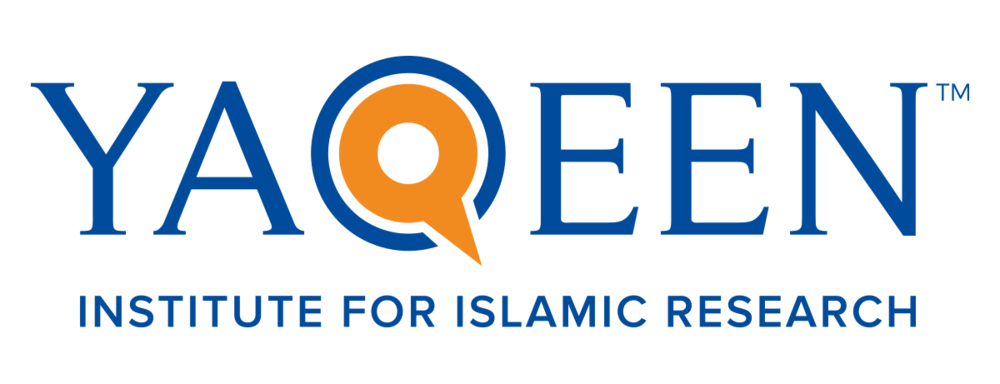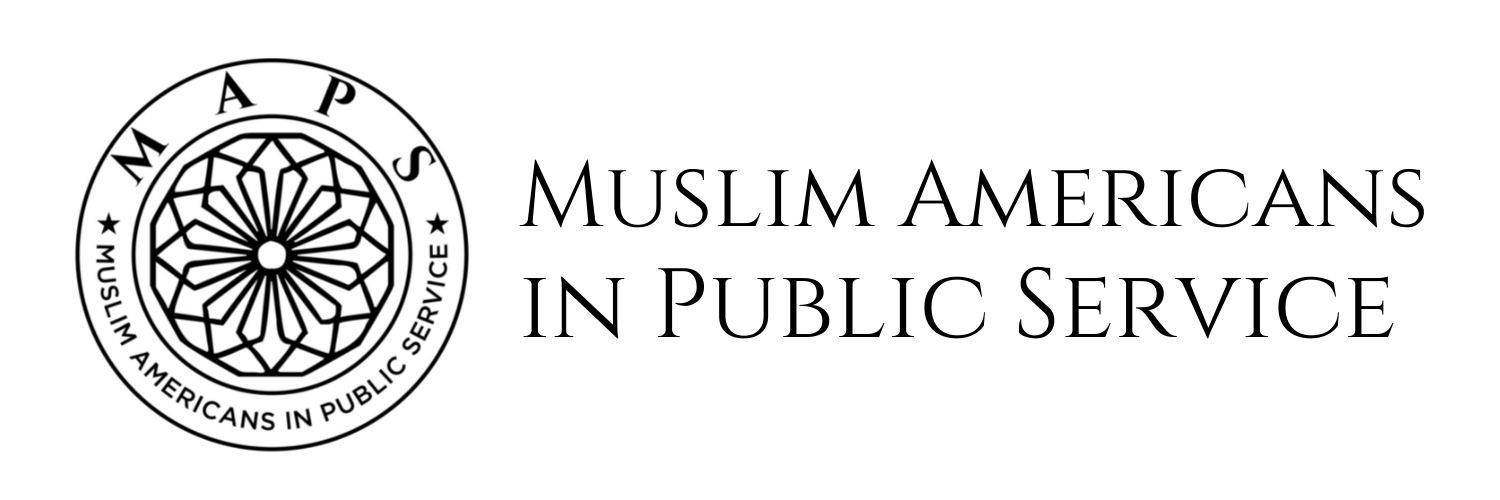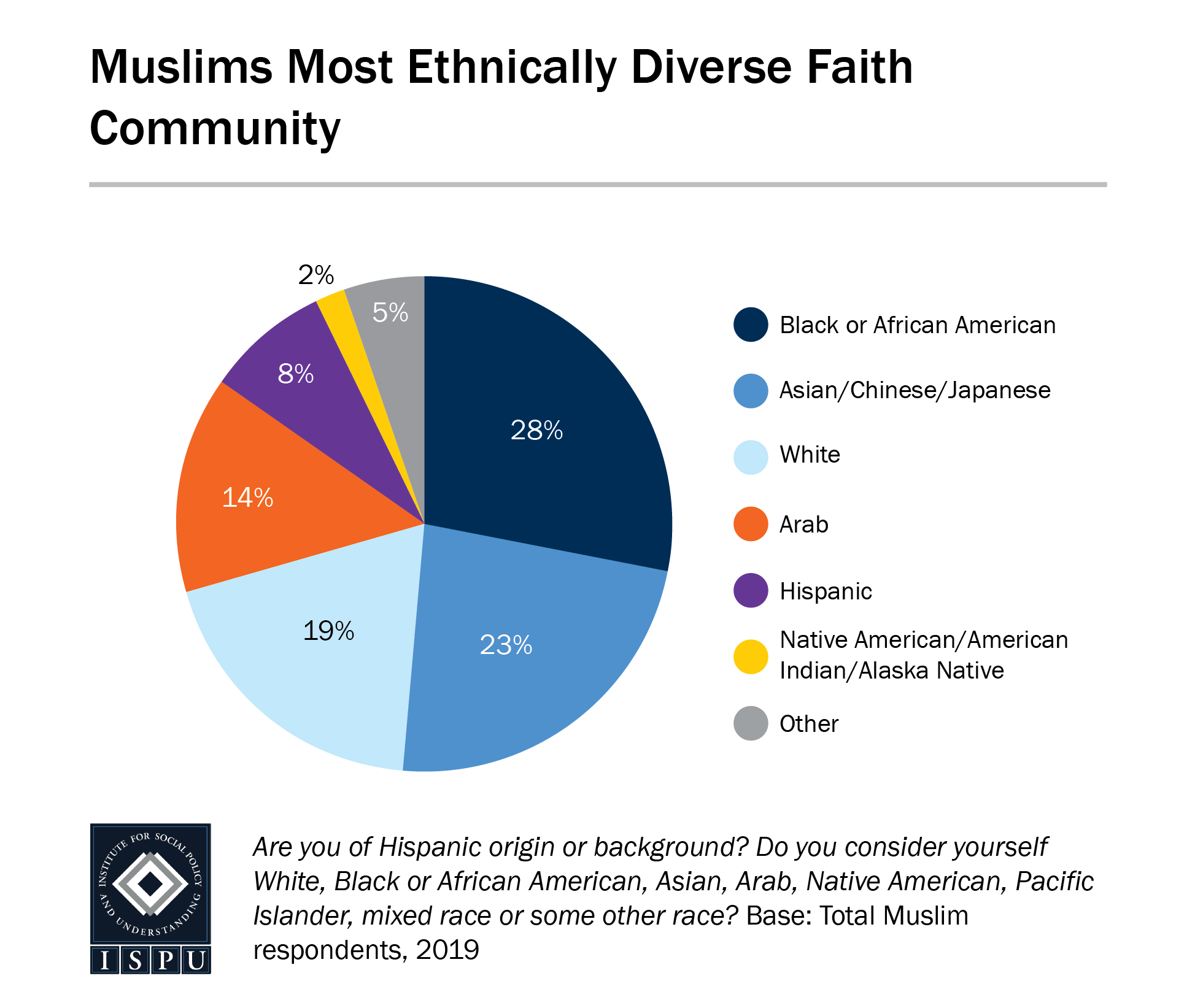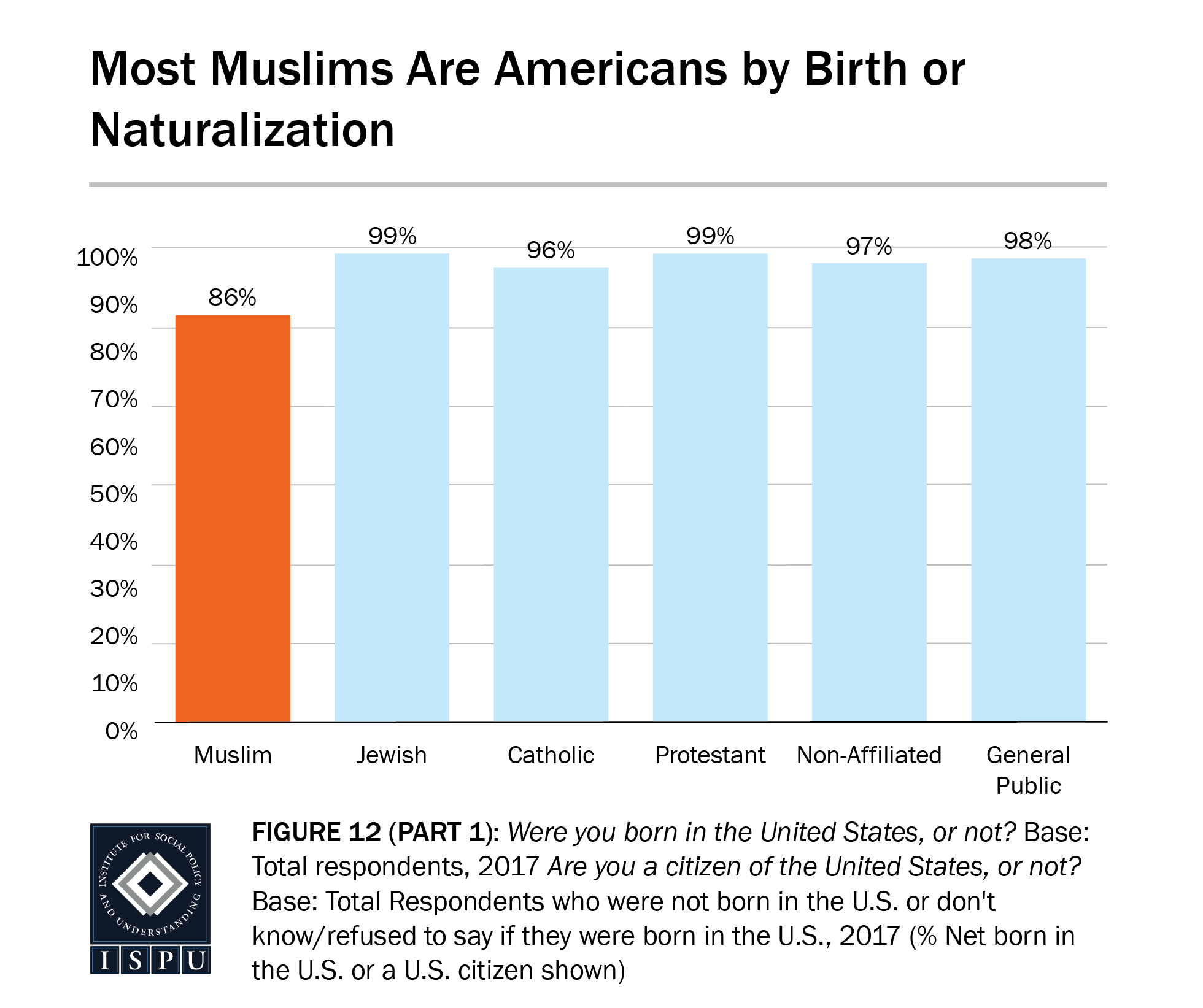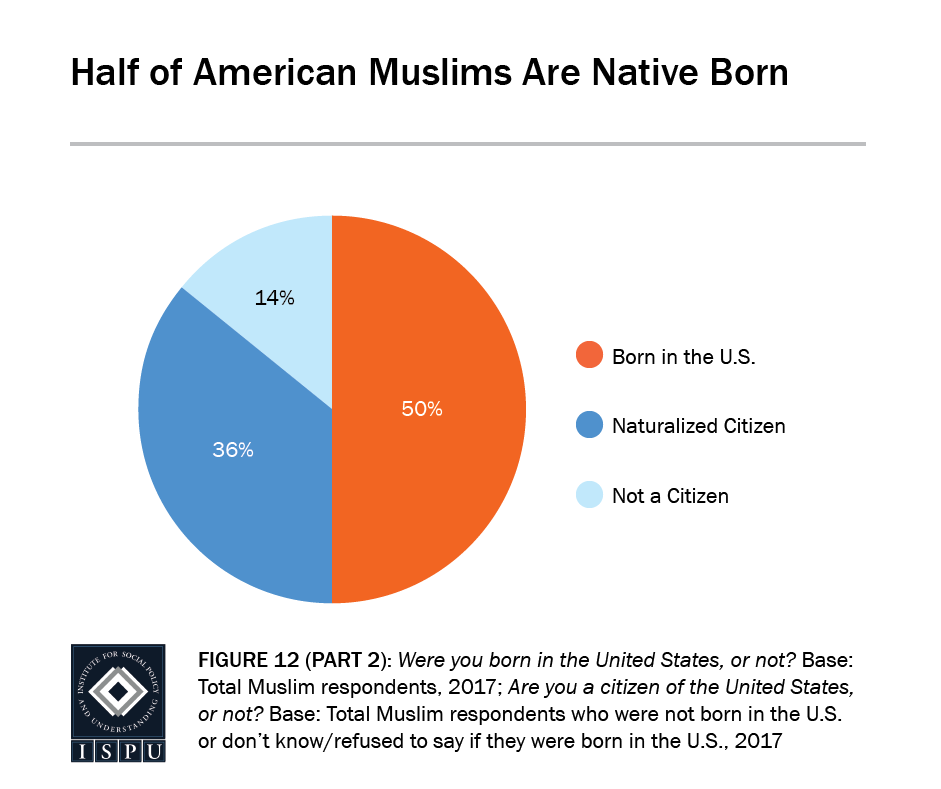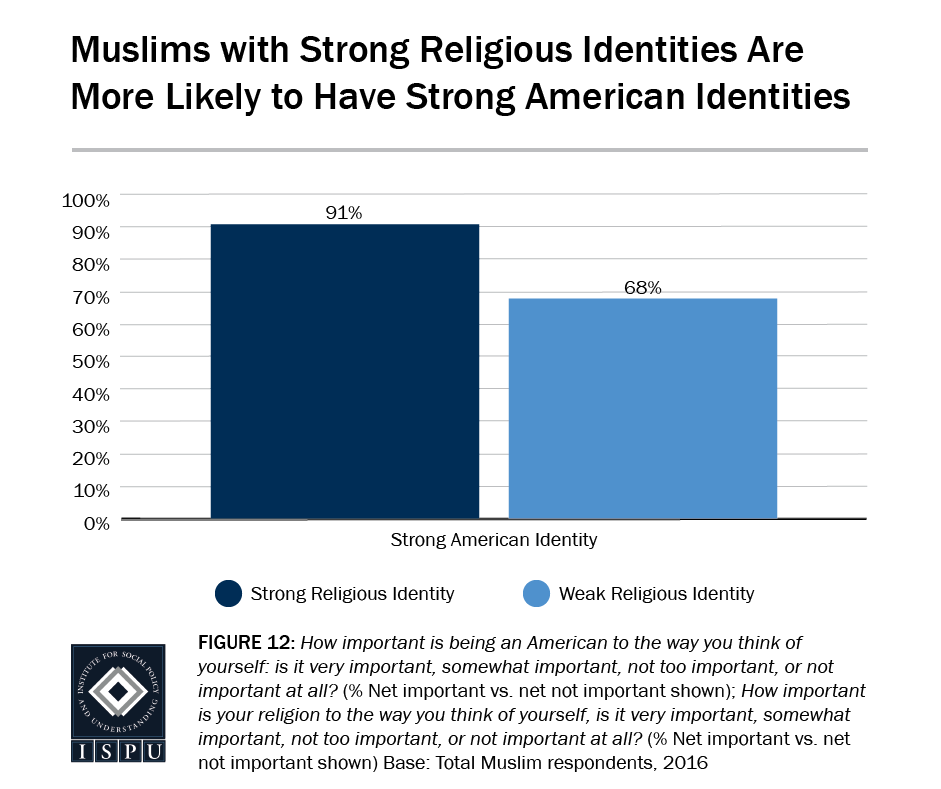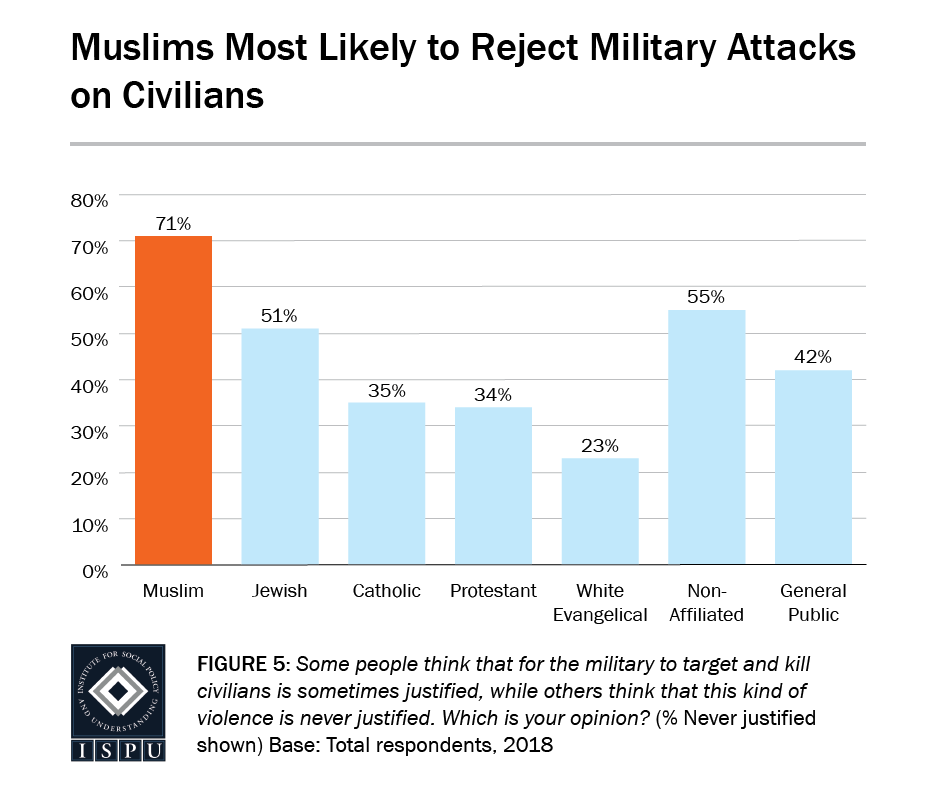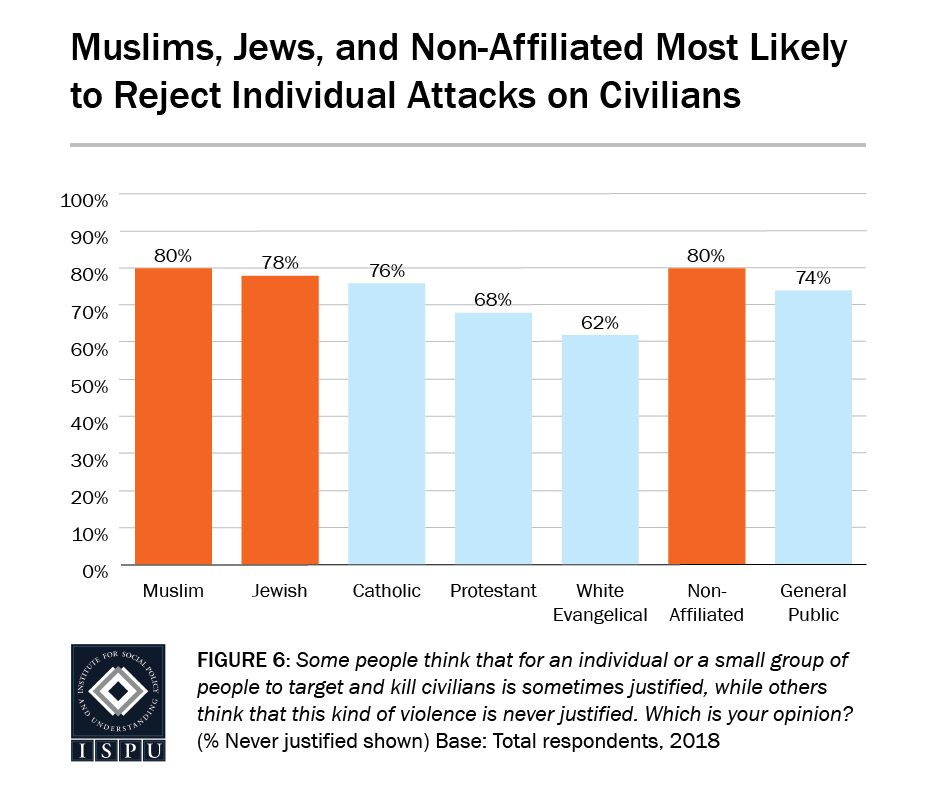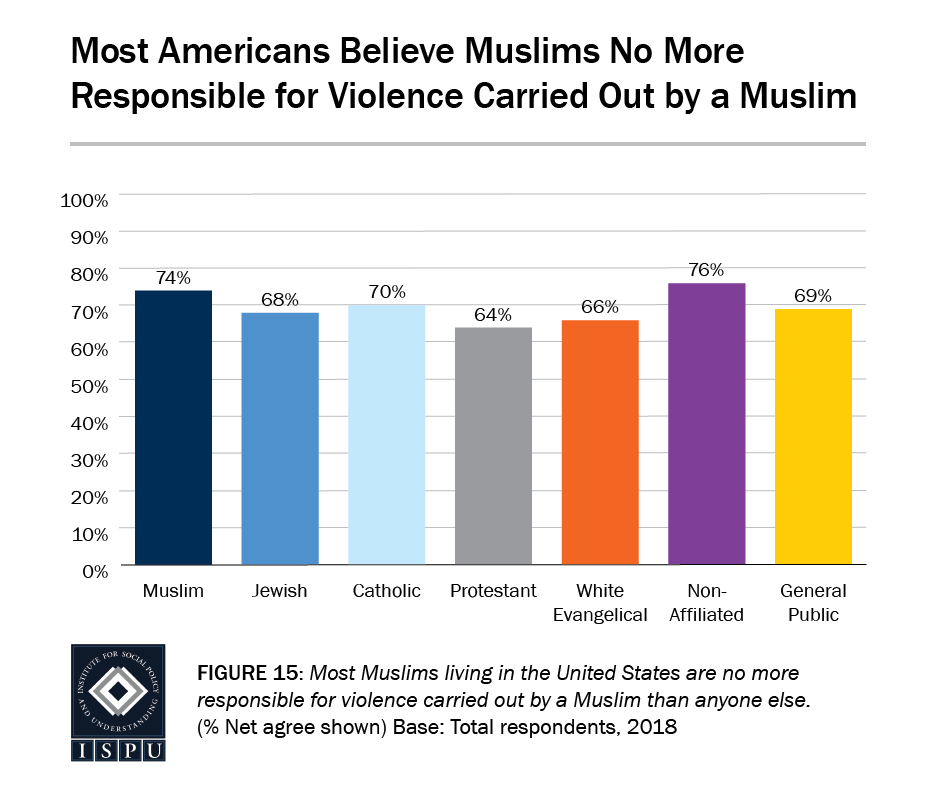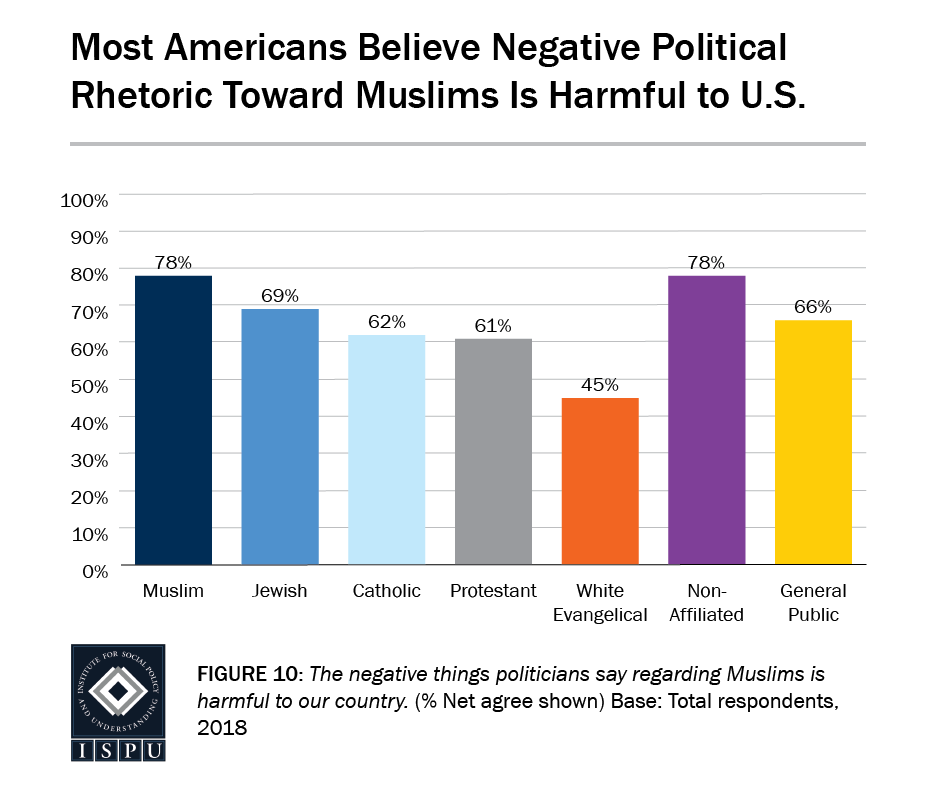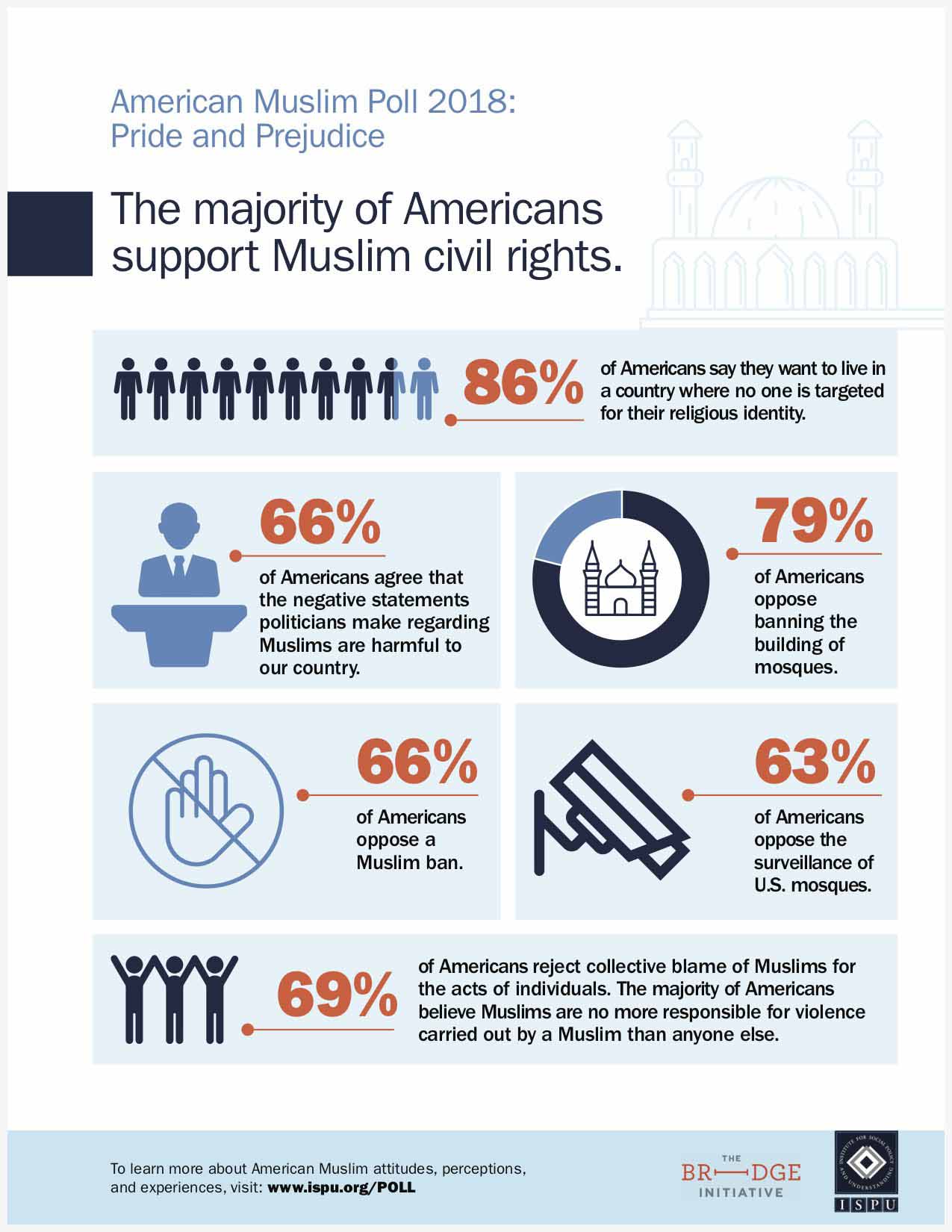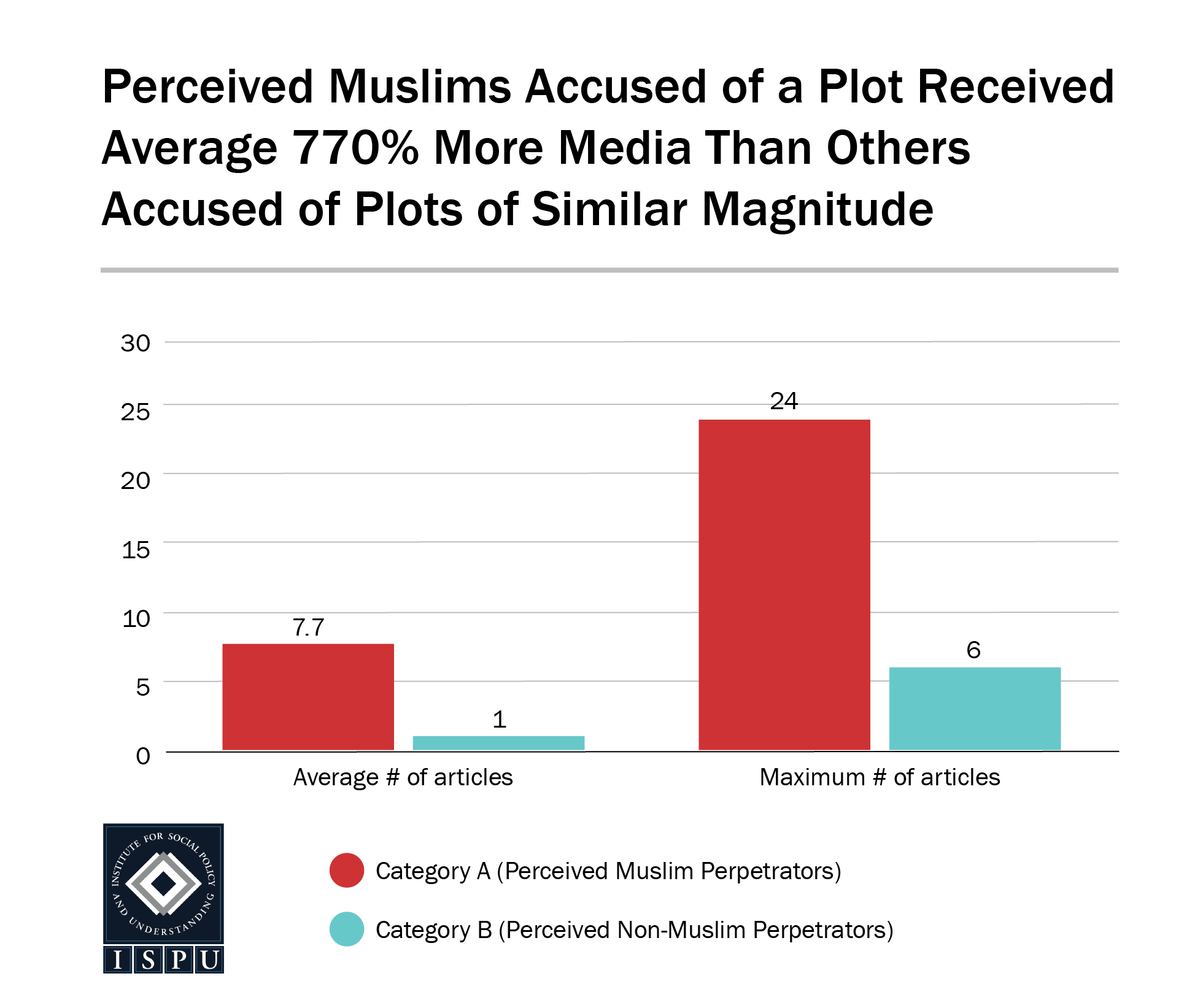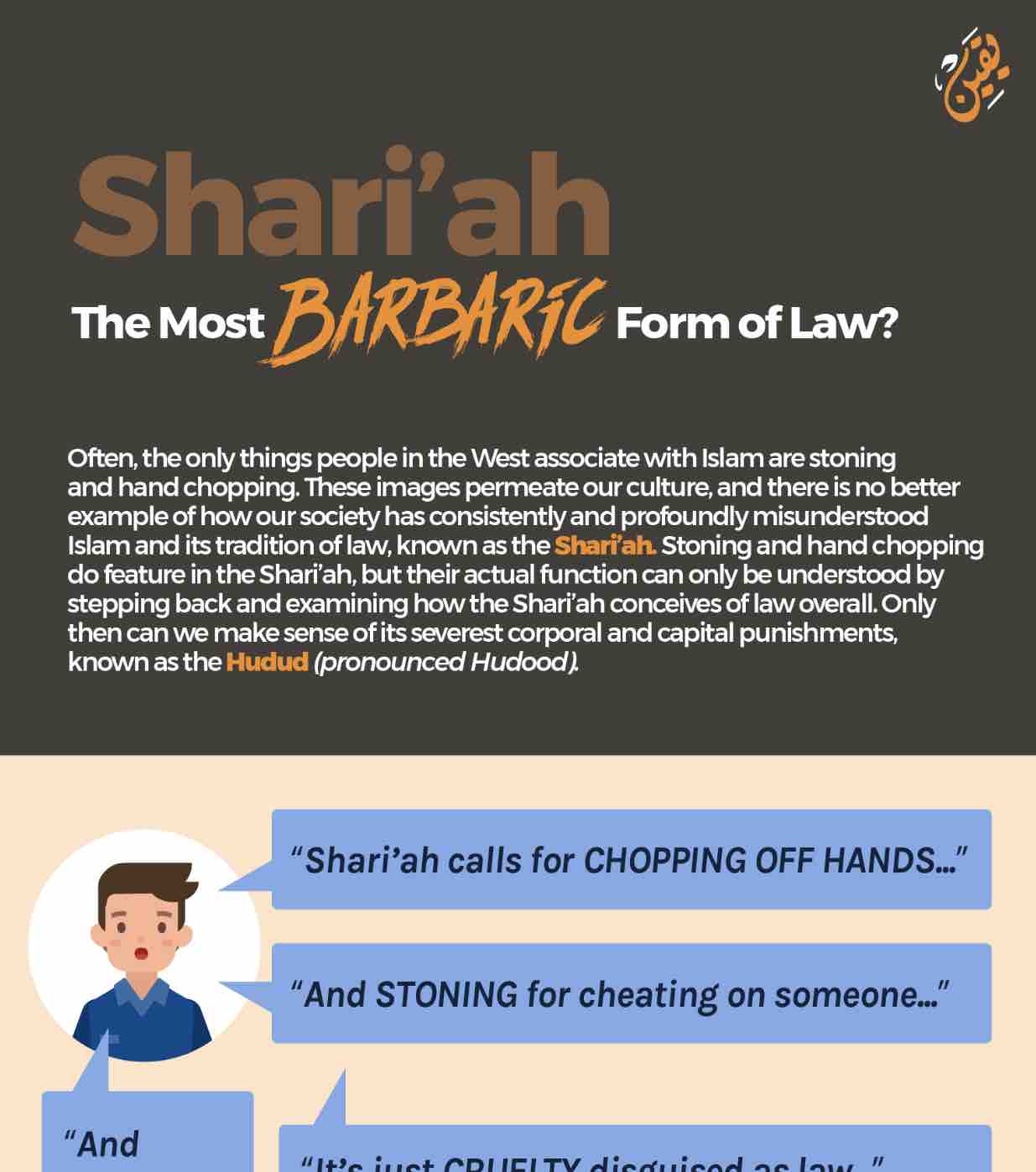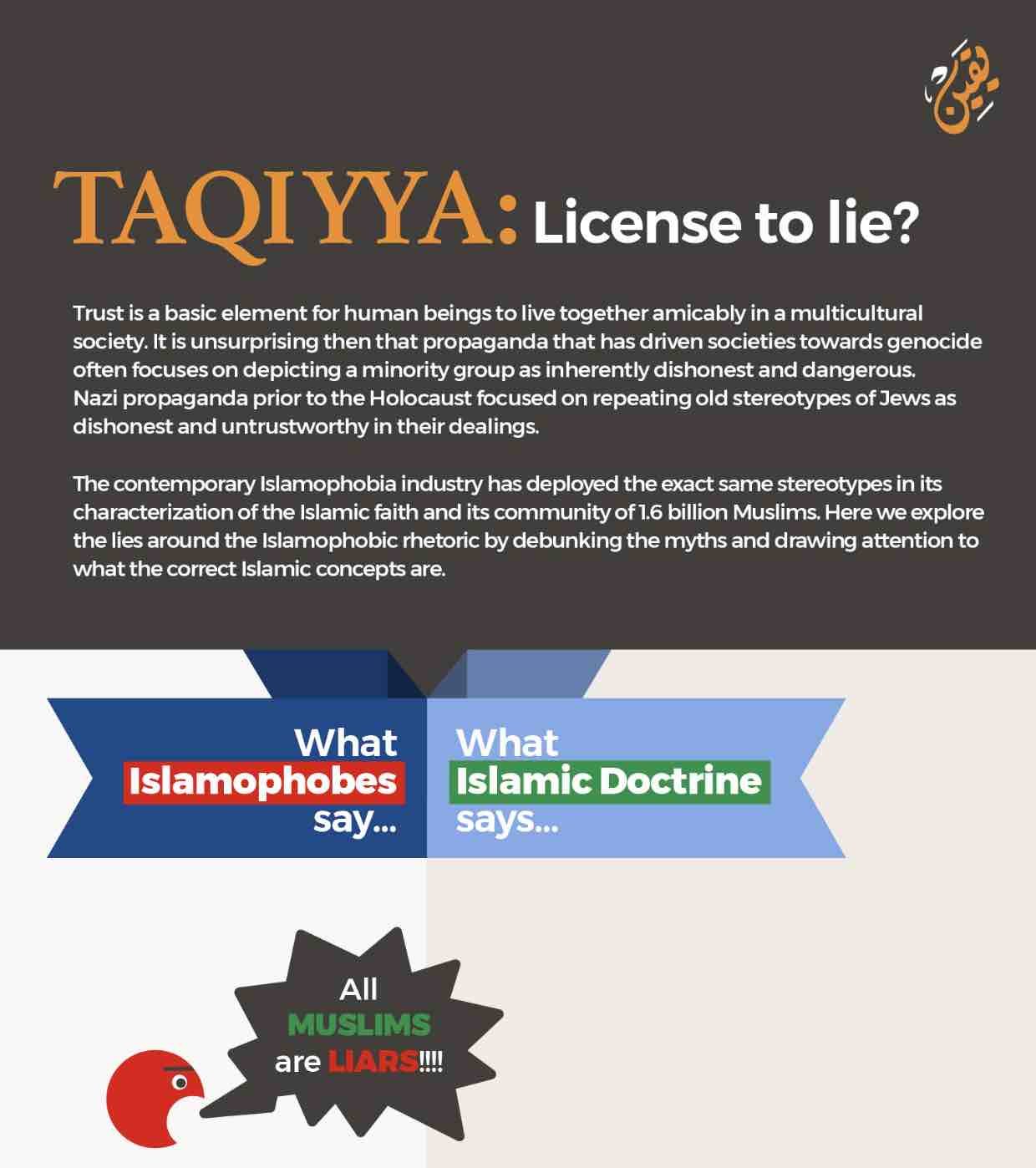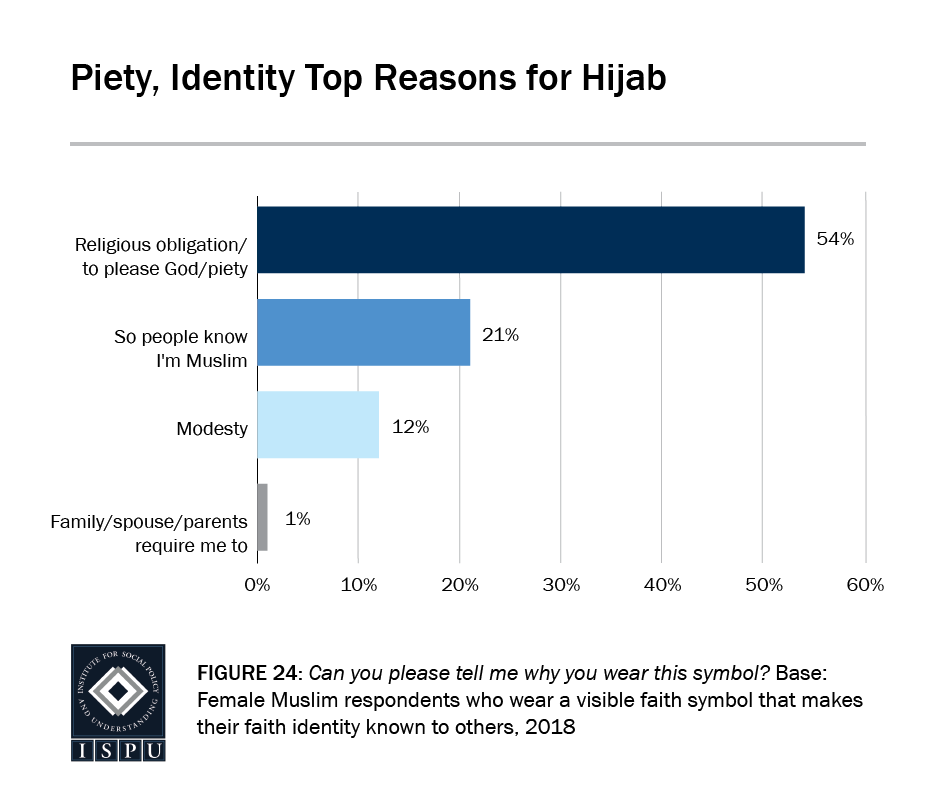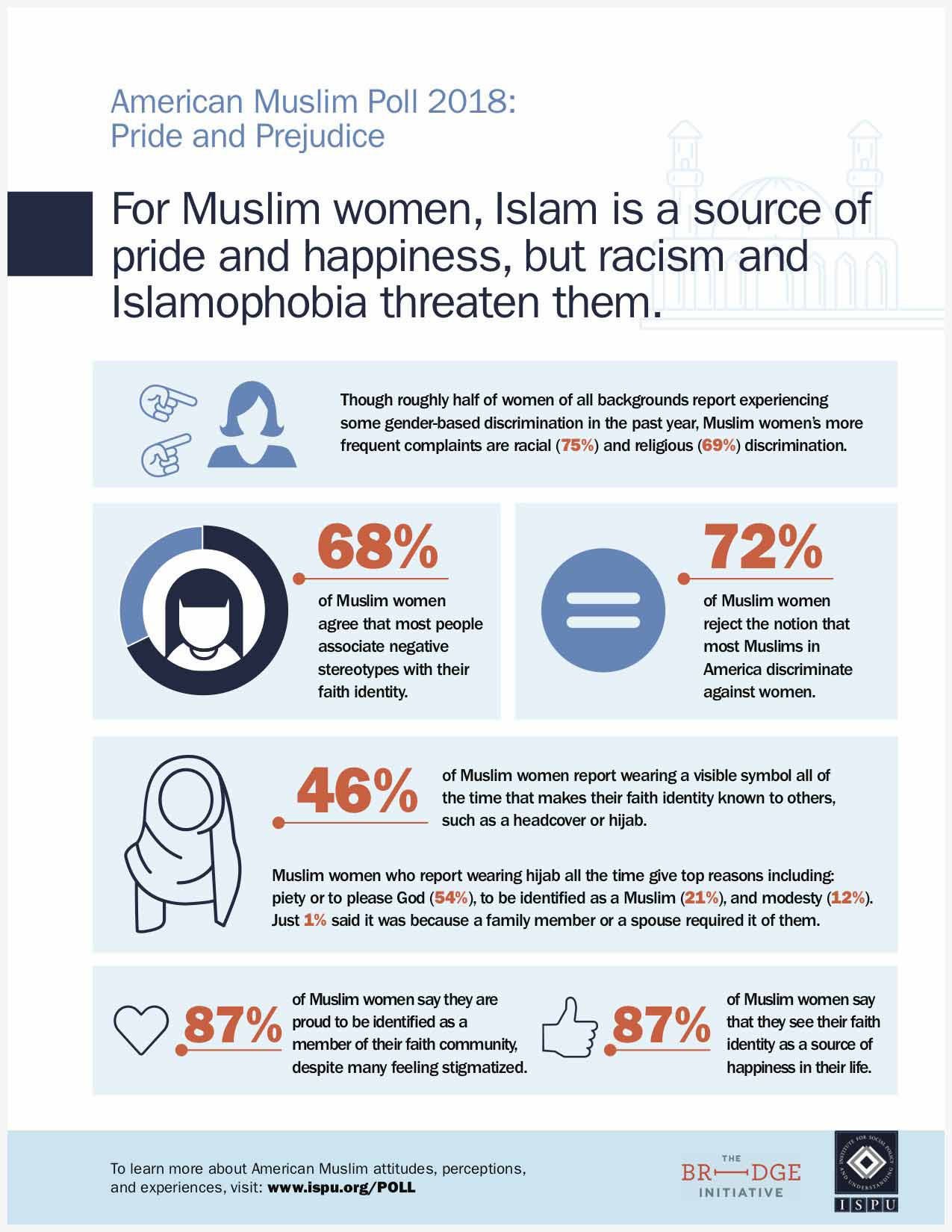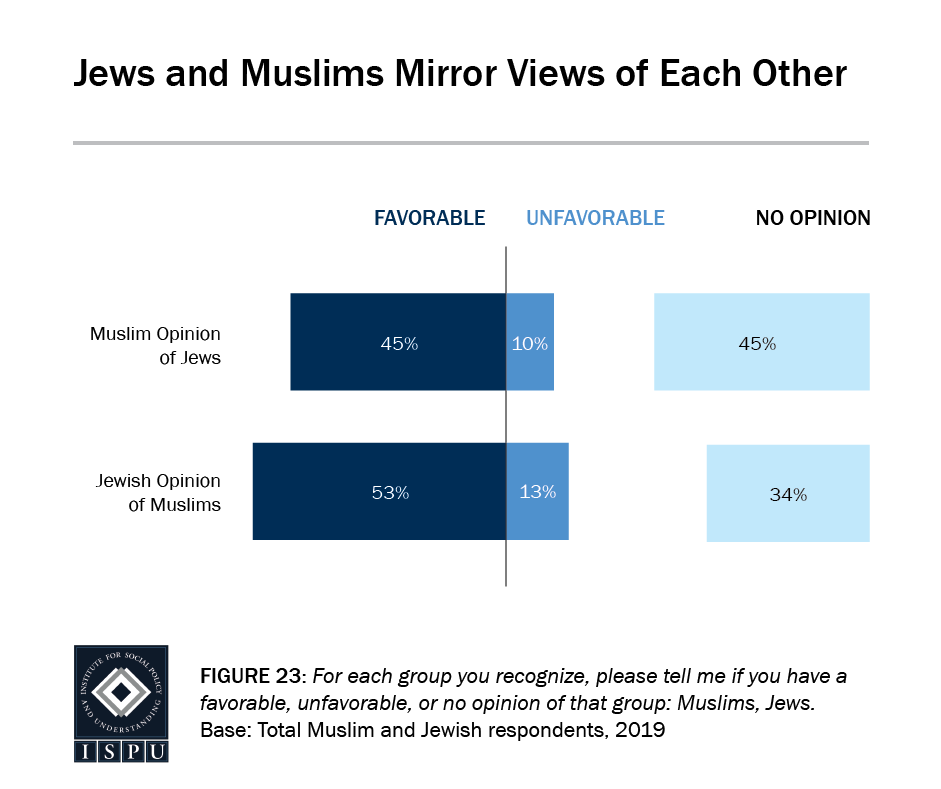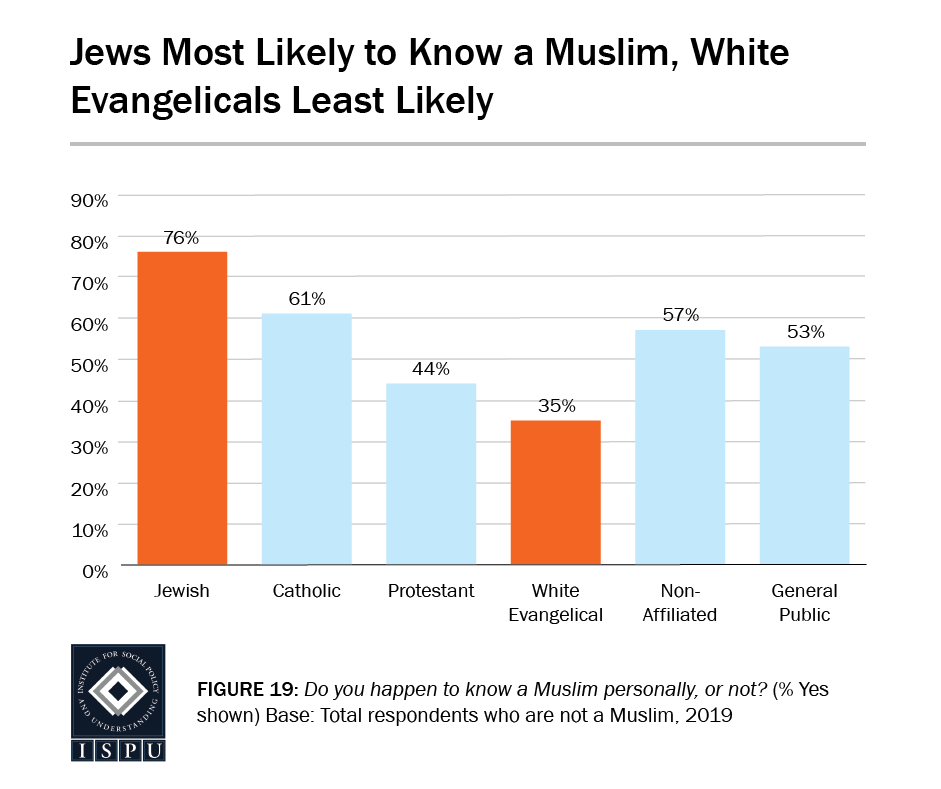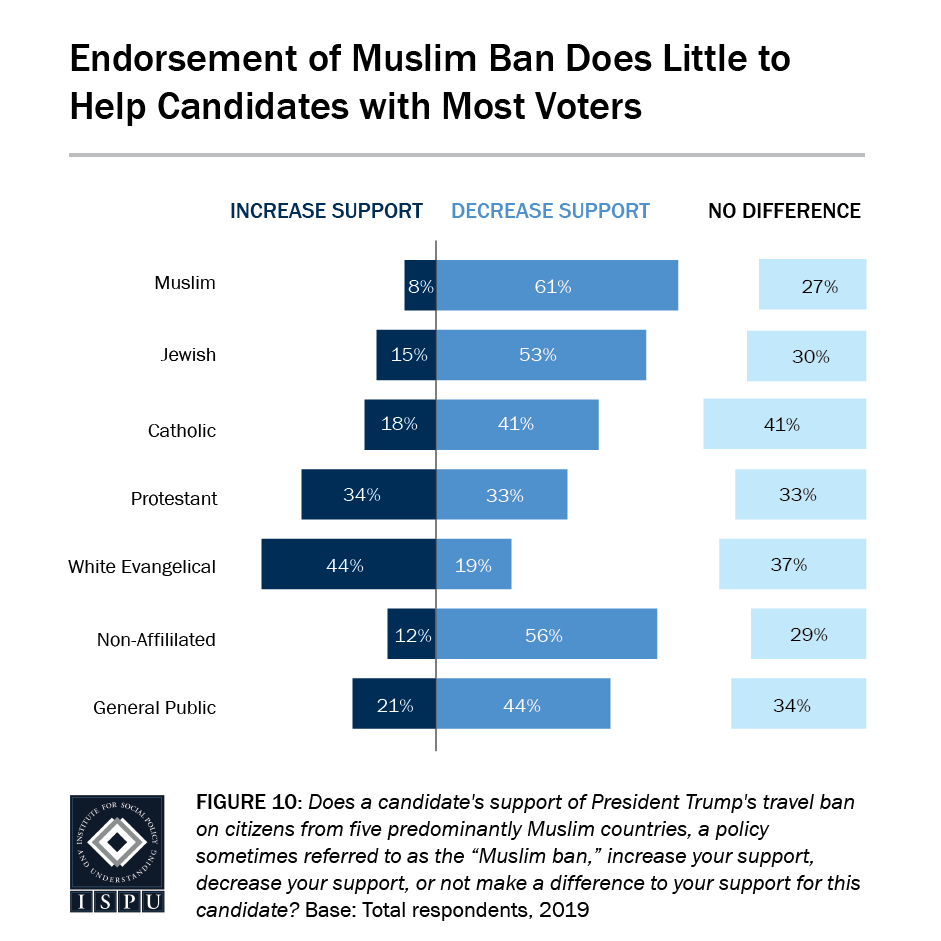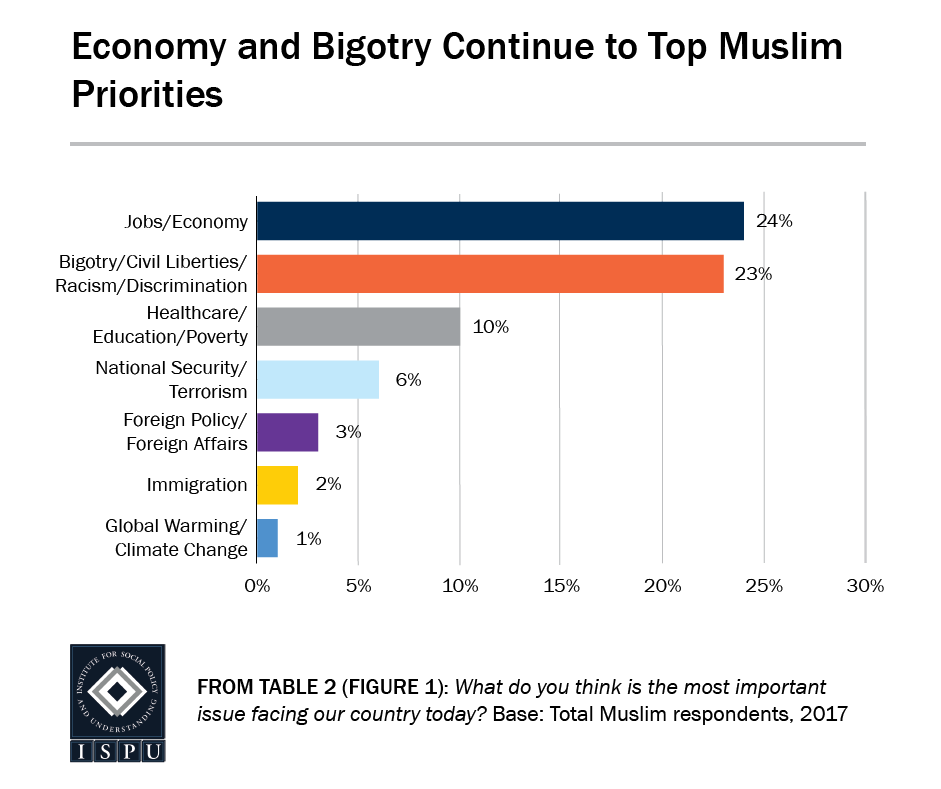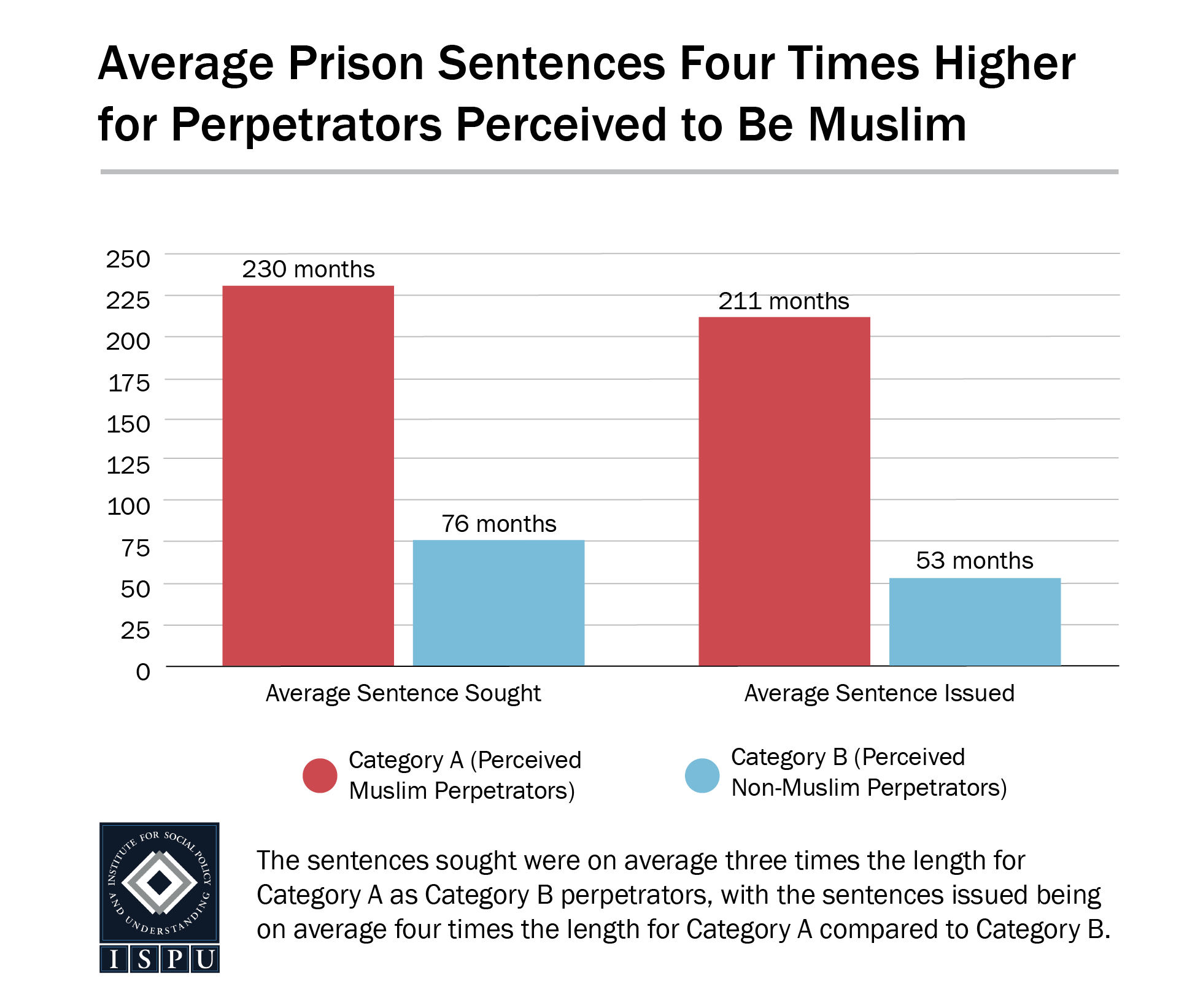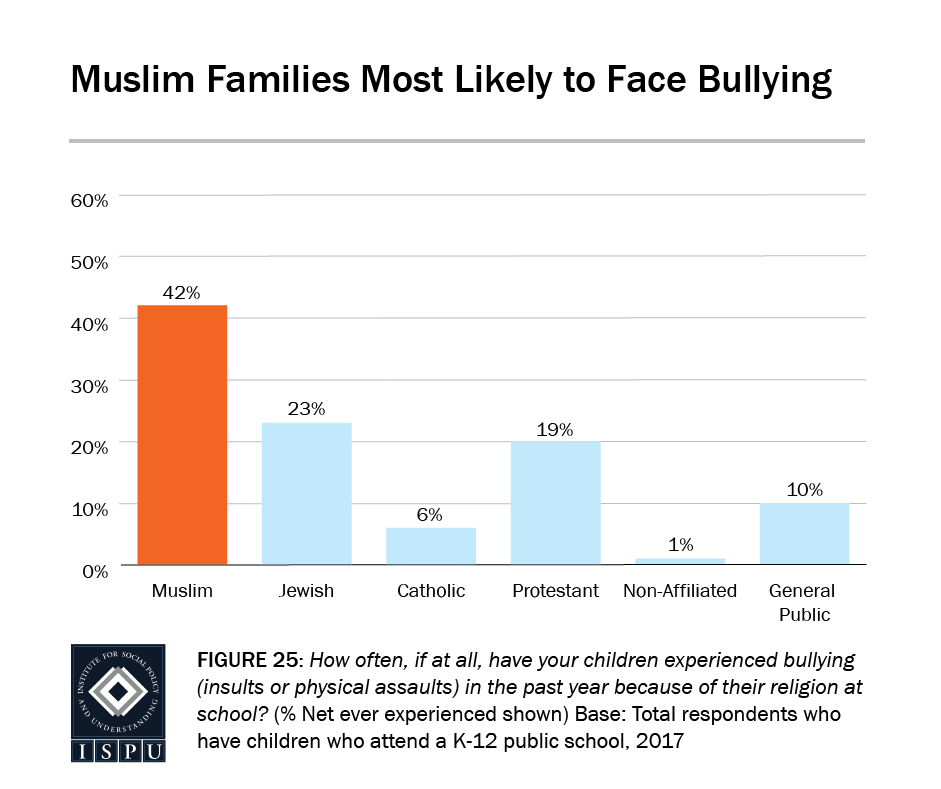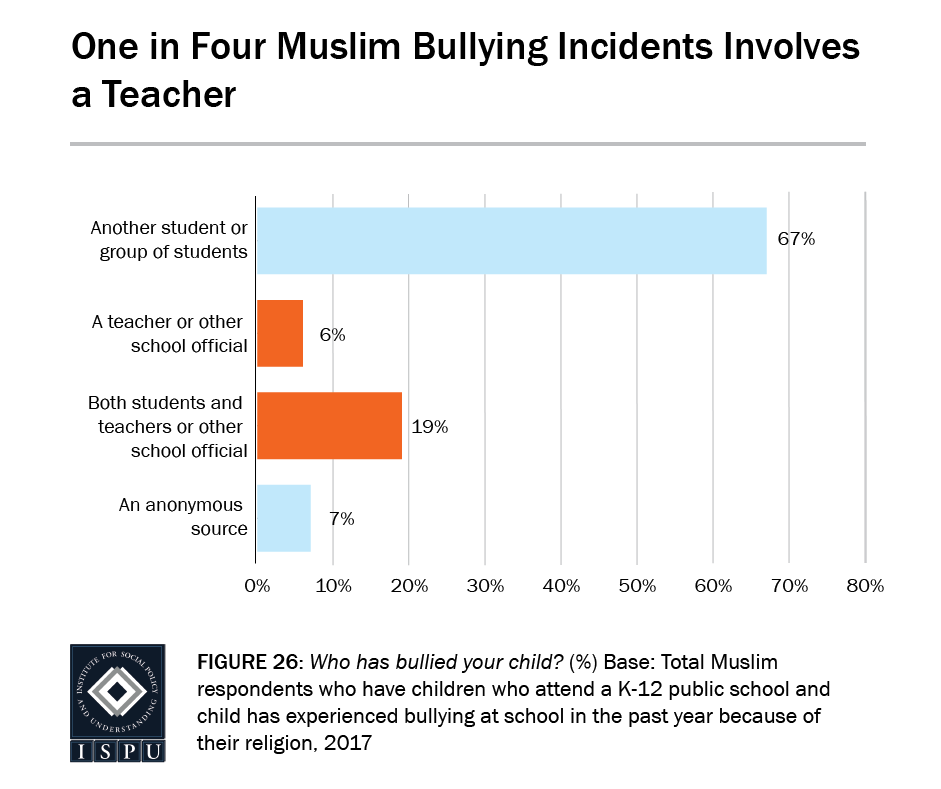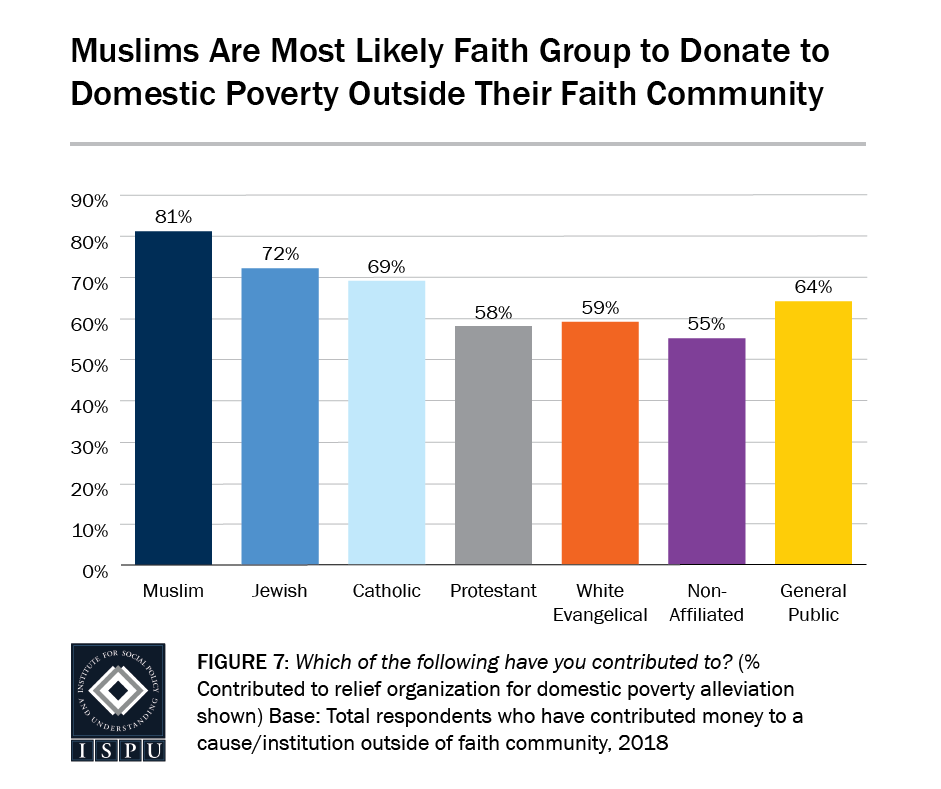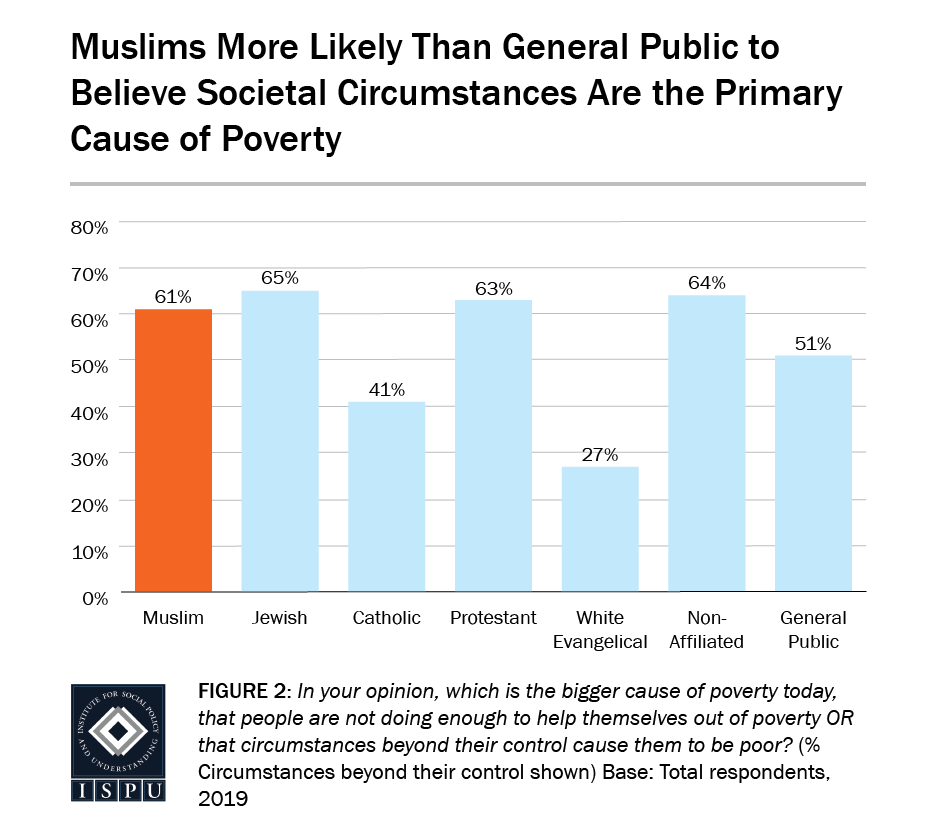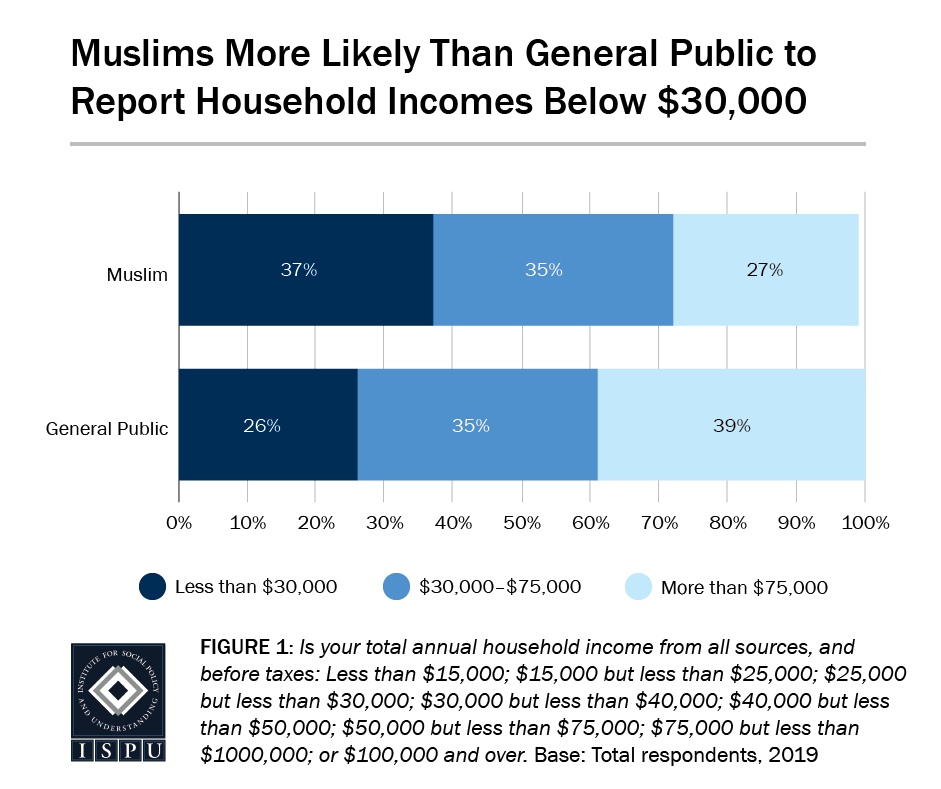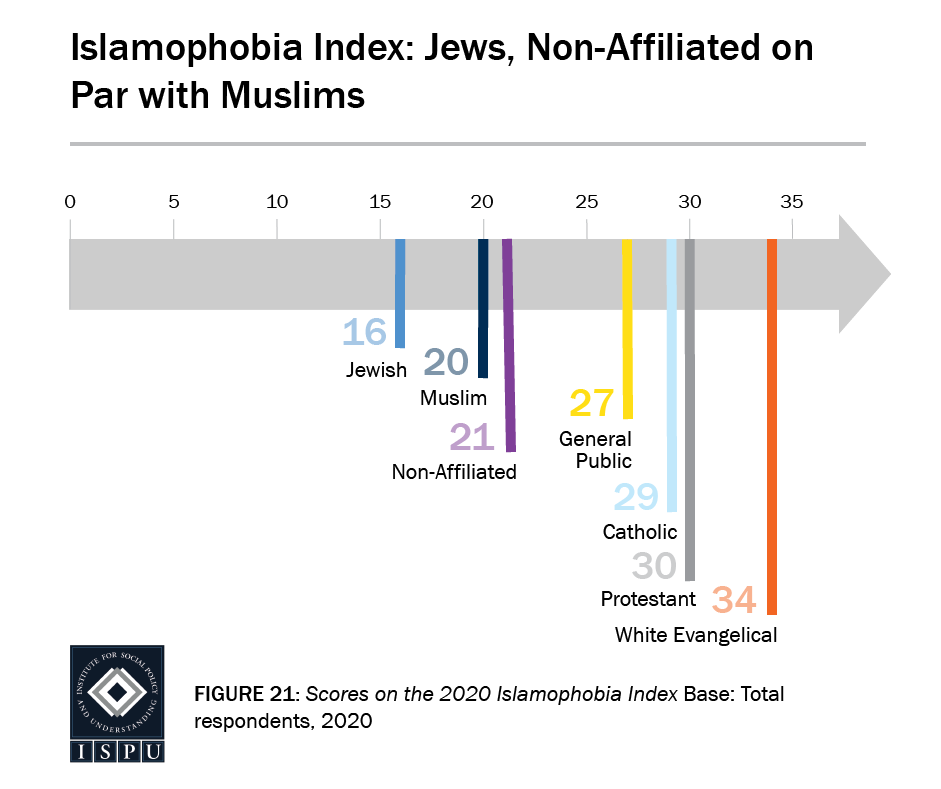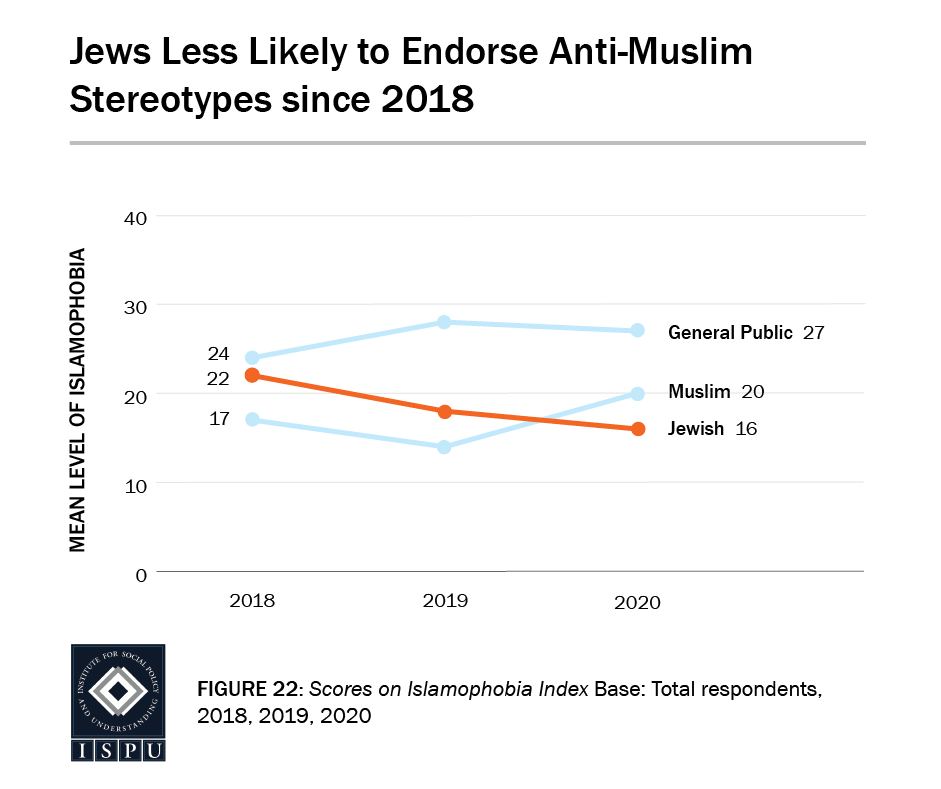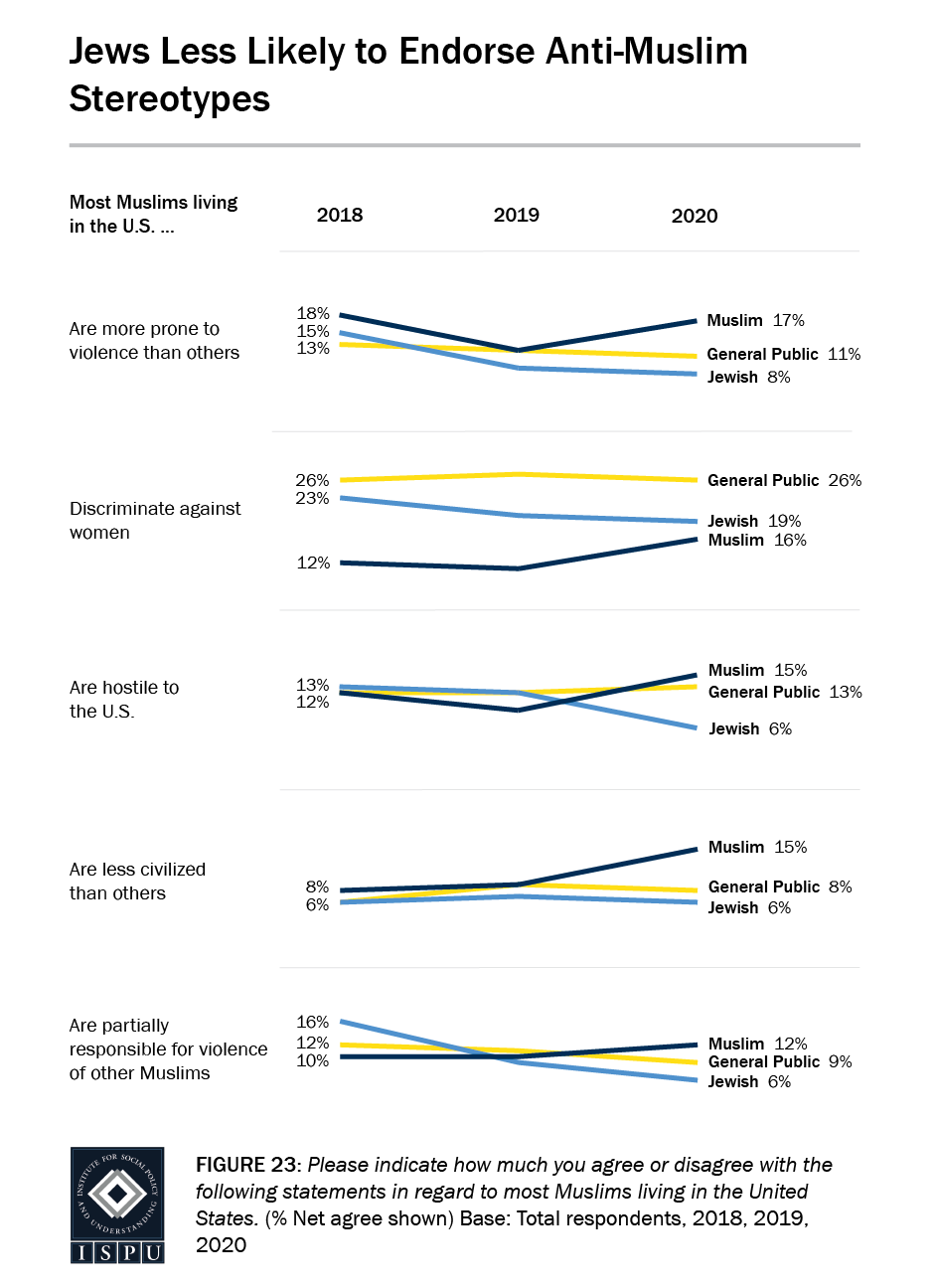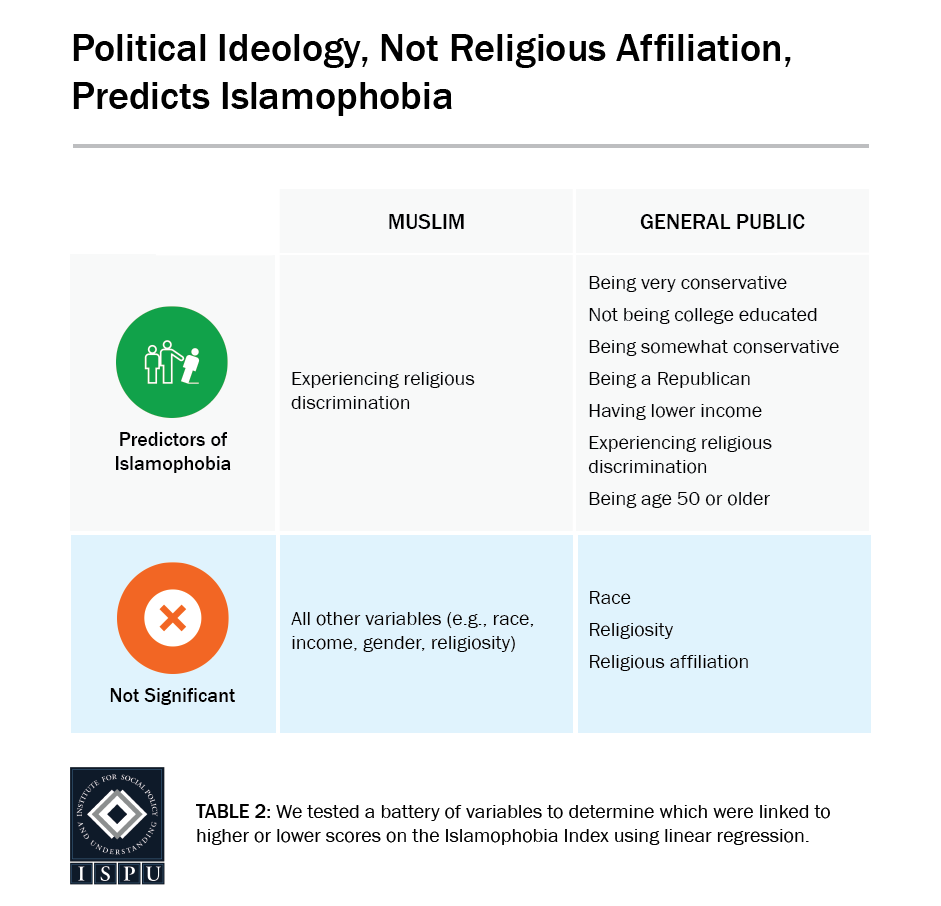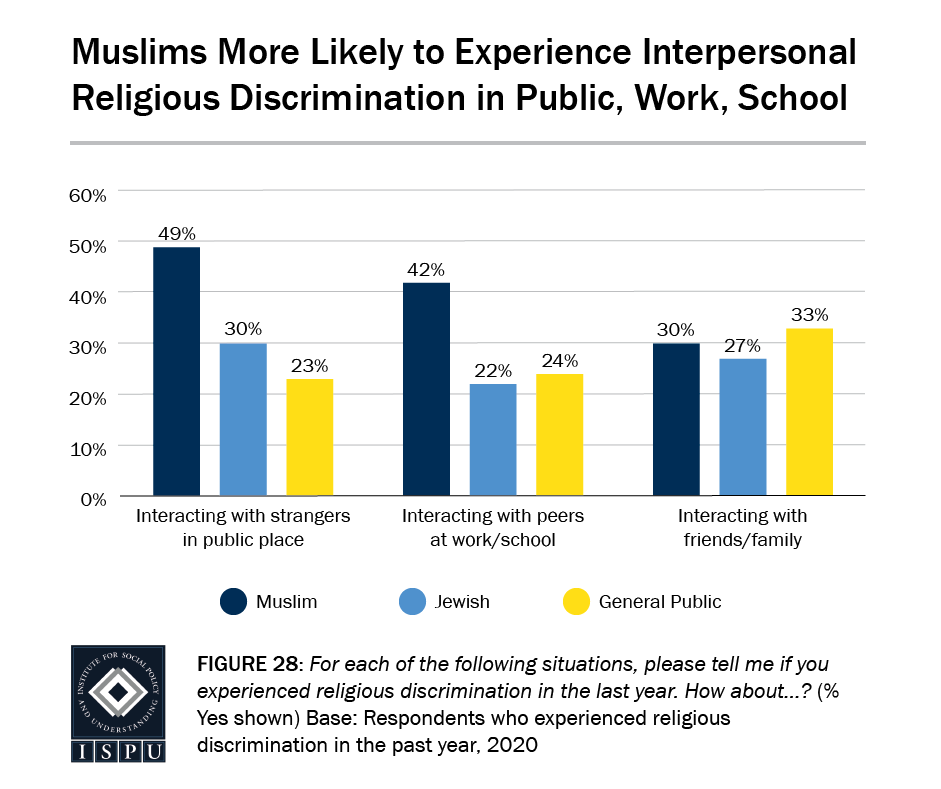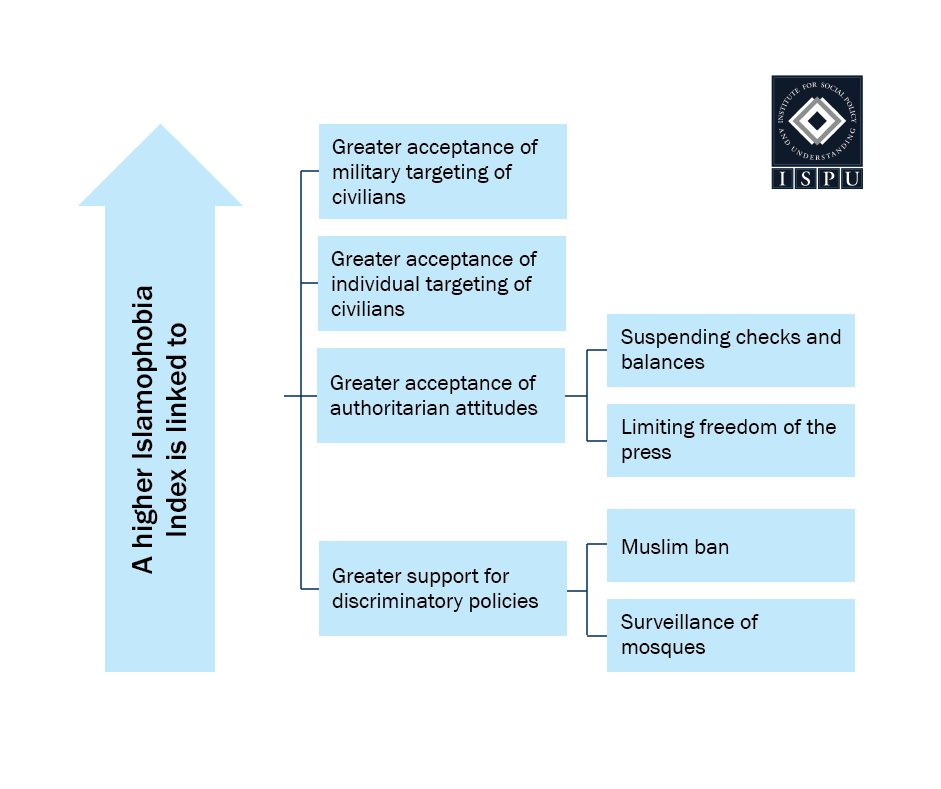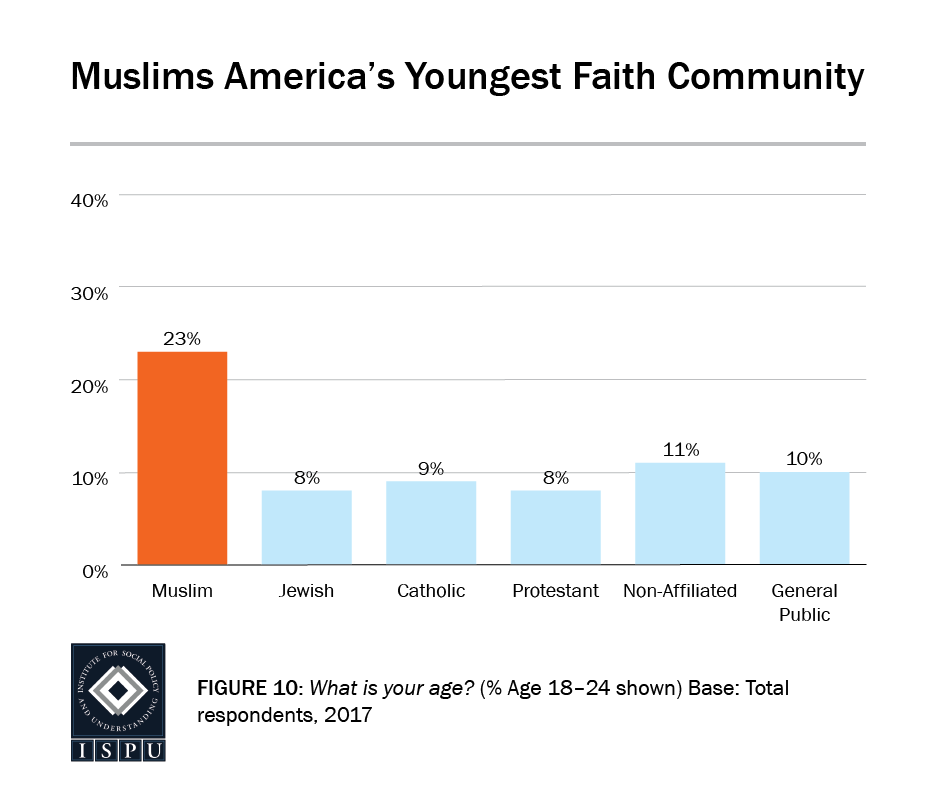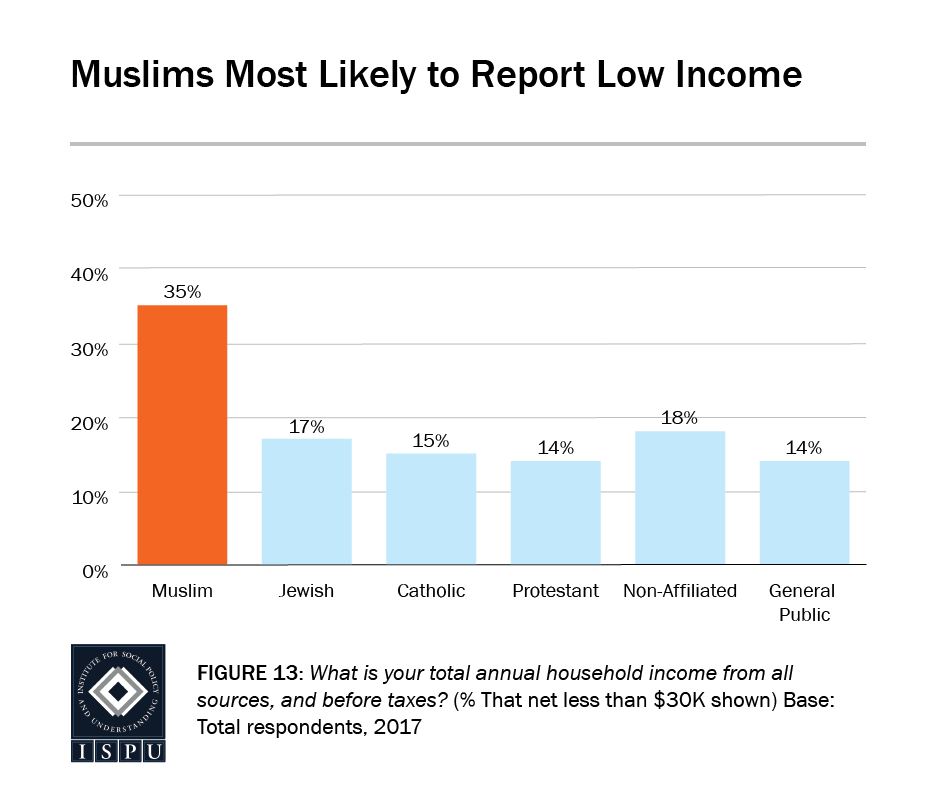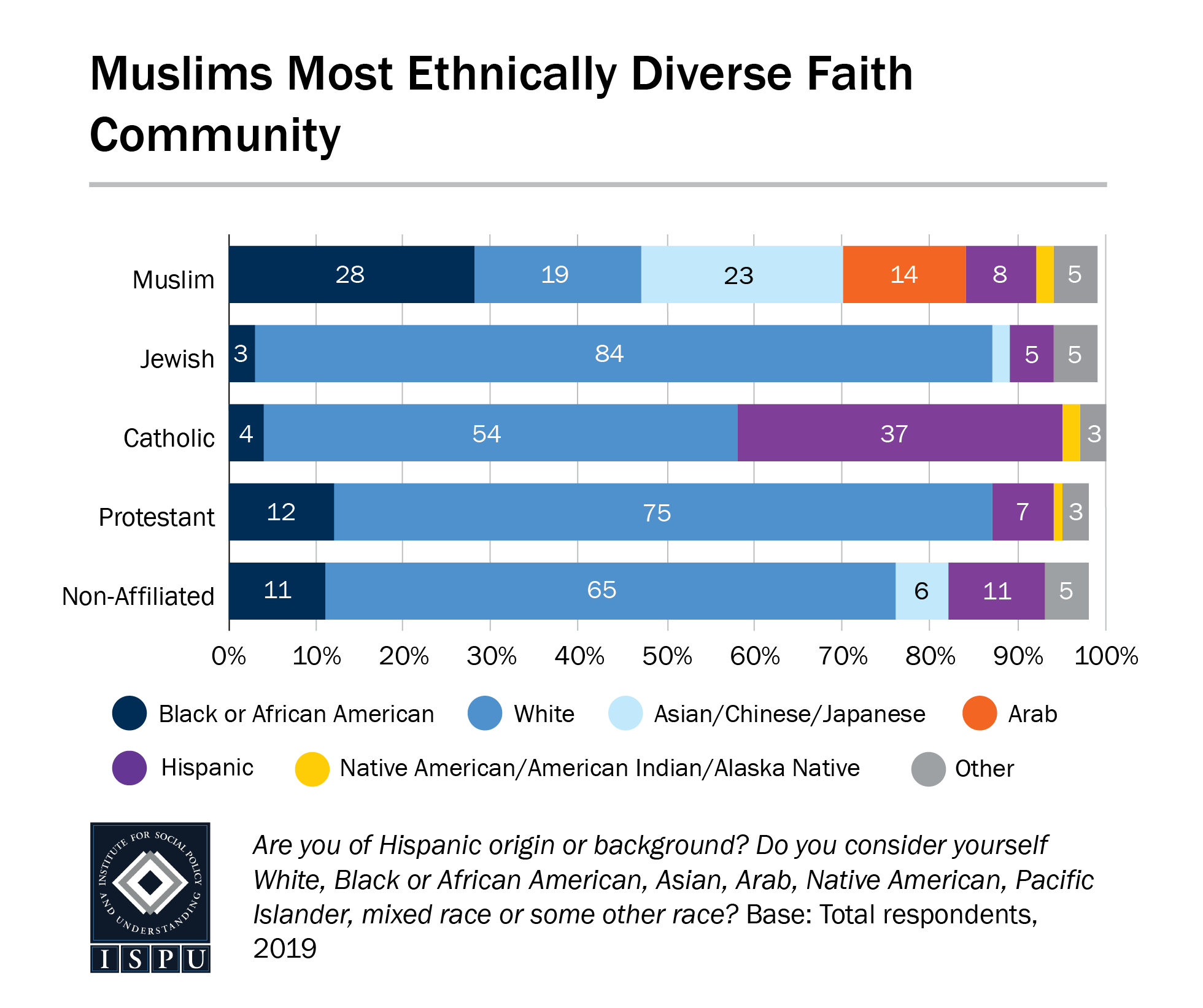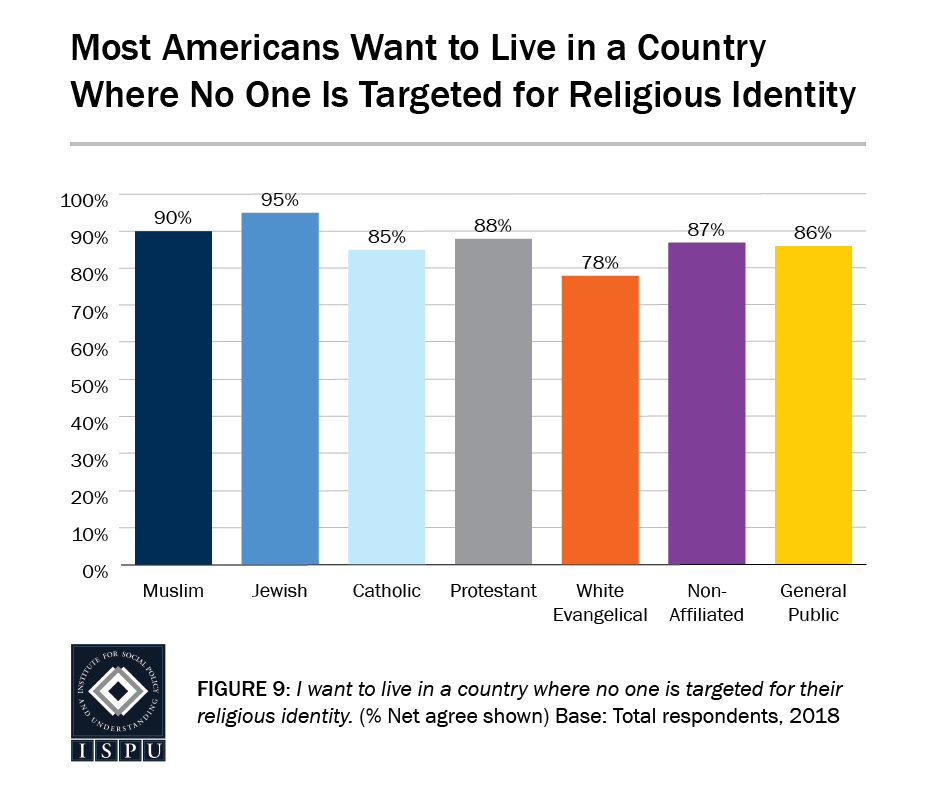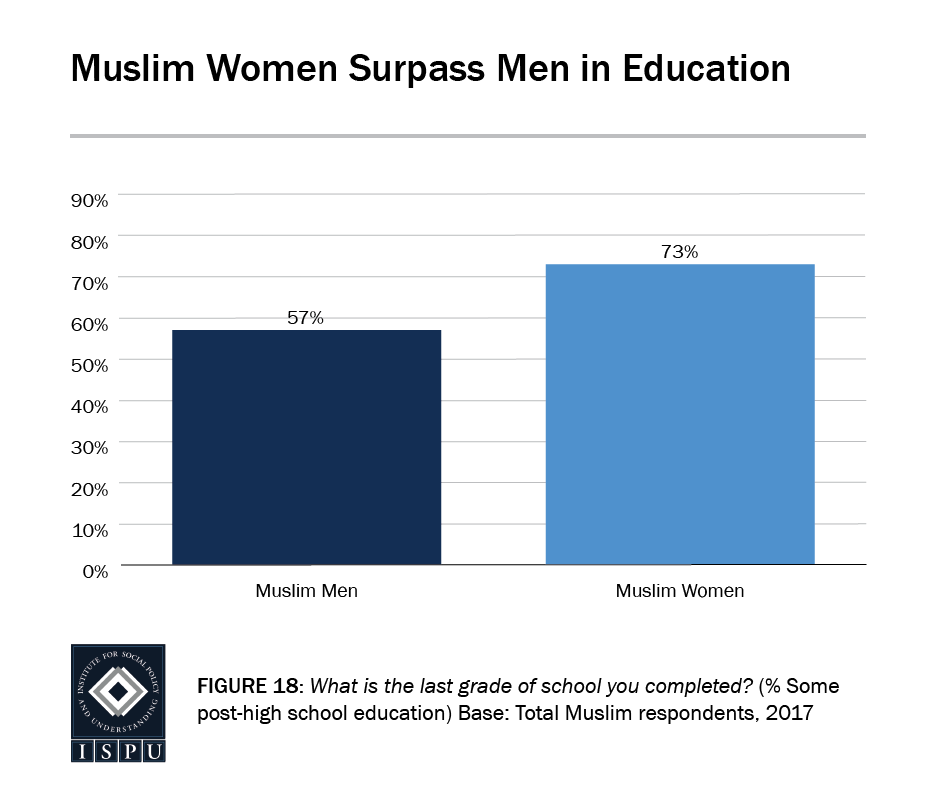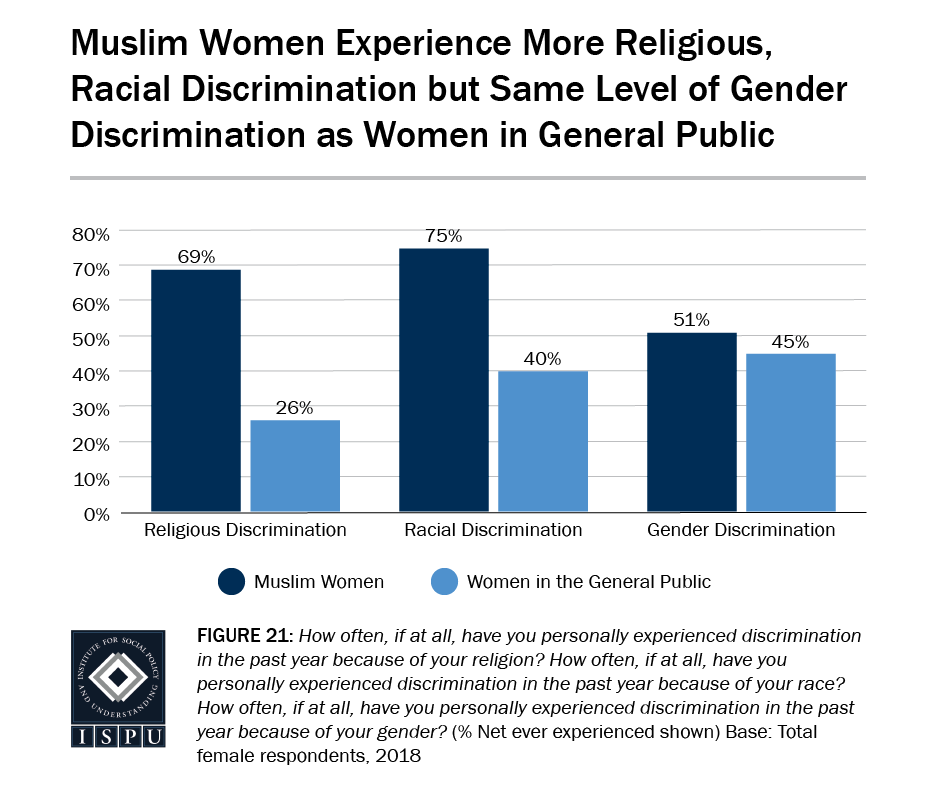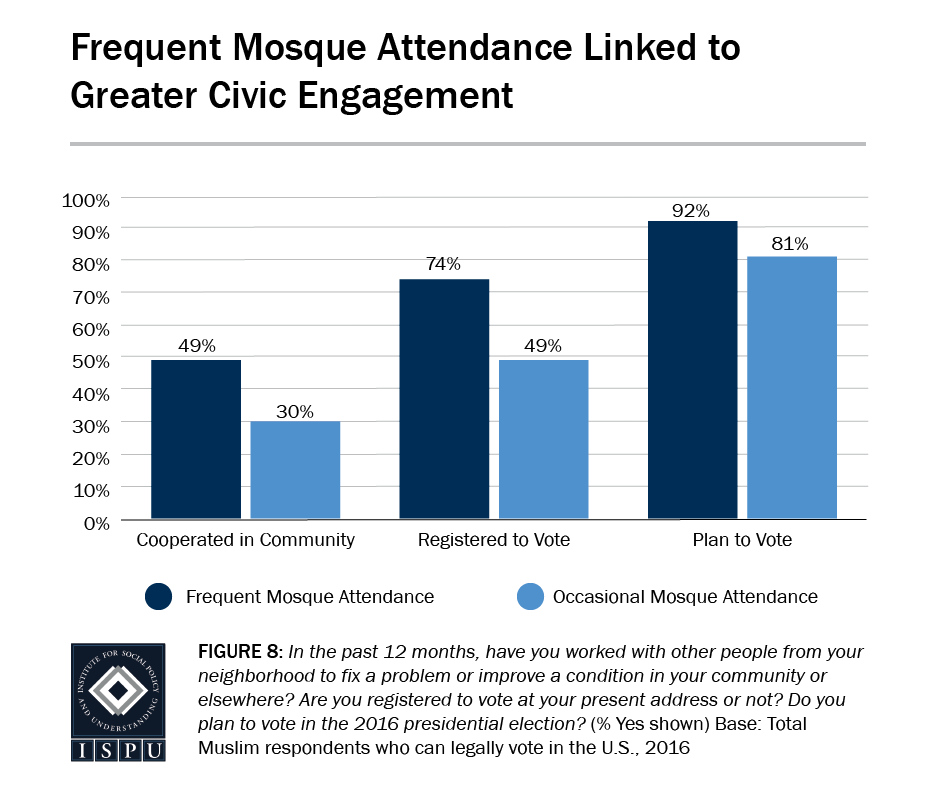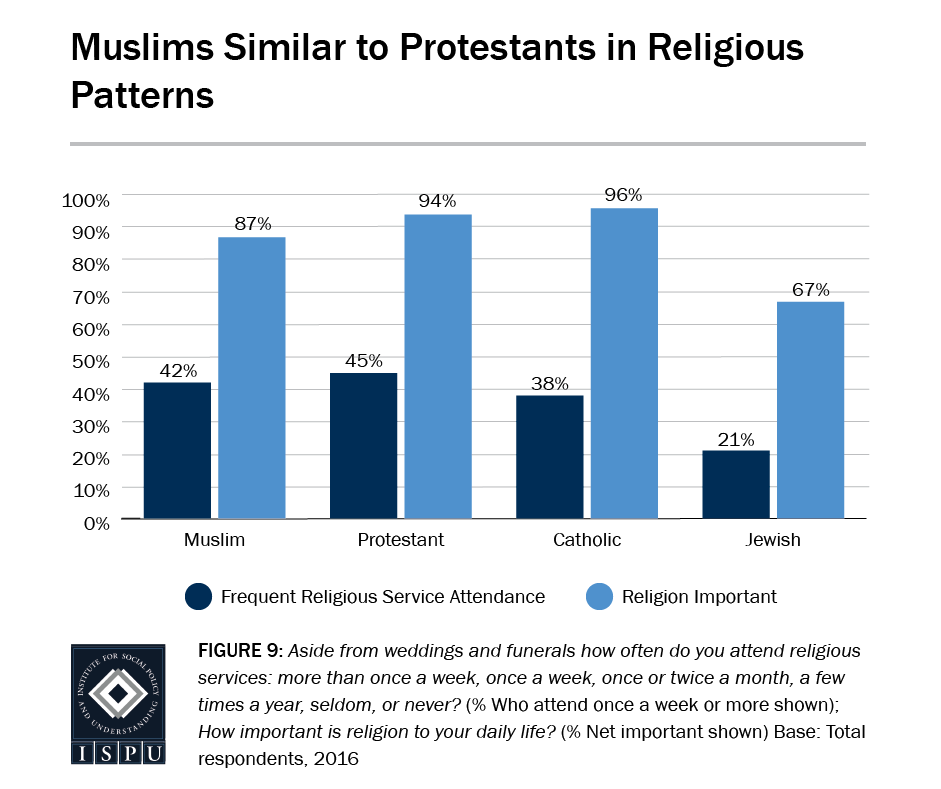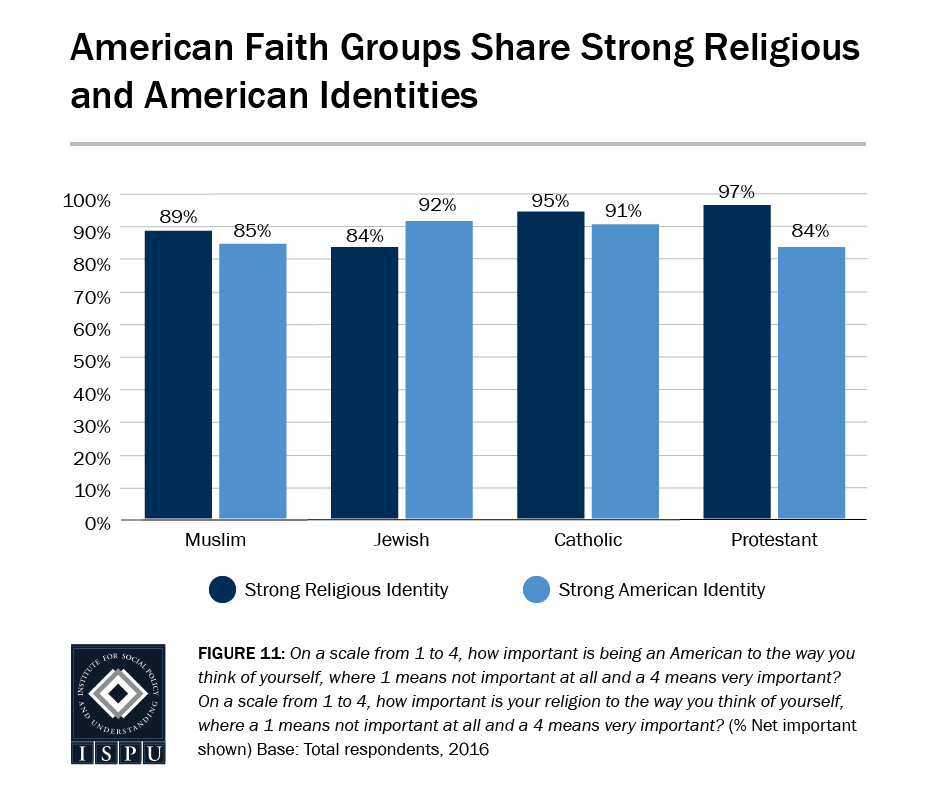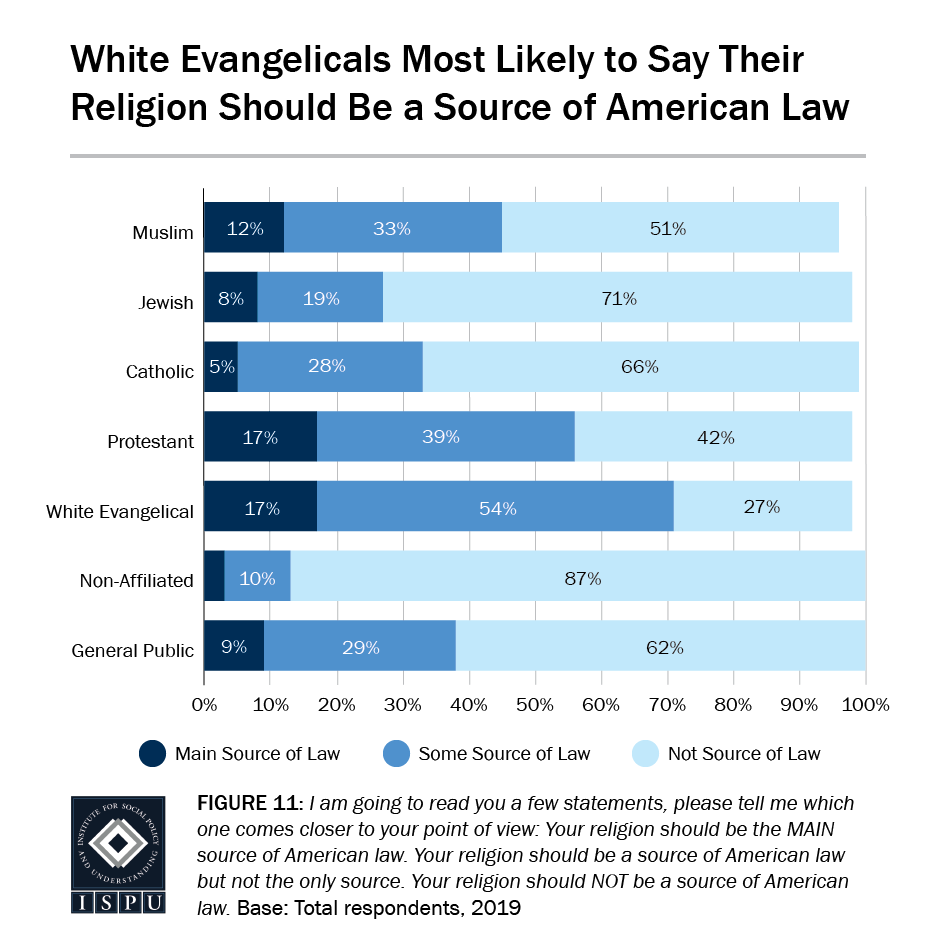.
.
Government Administrators Toolkit
Research and Resources on Americans Muslims and Islam for Public Servants
Quick Links
Why This Guide? About ISPU, Yaqeen Institute, and MAPS
Problematic vs. Preferred Language
Commonly Used Terms
What Do Muslims Believe?
Cutting Through the Confusion: Facts on Muslims and Islam
What Are American Muslims’ Socio-Political Priorities?
Muslim Contributions to America
The Islamophobia Index
Religious Discrimination
Islamophobia is Bad for All Americans, Democracy, and Security
American Muslims 101
Additional Resources
Contributors + Advisors
.
.
Government Administrators Toolkit
Research and Resources on Americans Muslims and Islam for Public Servants
Quick Links
Why This Guide? About ISPU, Yaqeen Institute, and MAPS
Problematic vs. Preferred Language
Commonly Used Terms
What Do Muslims Believe?
Cutting Through the Confusion: Facts on Muslims and Islam
What Are American Muslims’ Socio-Political Priorities?
Muslim Contributions to America
The Islamophobia Index
Religious Discrimination
Islamophobia is Bad for All Americans, Democracy, and Security
American Muslims 101
Additional Resources
Contributors + Advisors
Why This Guide? About ISPU, Yaqeen Institute, and MAPS
The majority of Americans say they do not know a Muslim. For many of these Americans, what they know about Muslims is informed by media representations. However, according to media content analysis, more than 80% of television media coverage of Islam and Muslims in the United States is negative. Such narrow media depictions open the door to distorted public perceptions of American Muslims, especially in the absence of any firsthand knowledge of this diverse community. These misperceptions contribute to high levels of institutional and interpersonal discrimination for American Muslims, particularly when they are applying for a job and interacting with peers at work. In fact, this group faces the highest levels of discrimination of any faith or non-faith group measured in ISPU’s 2020 American Muslim Poll.
This lack of accurate information, coupled with negative media portrayals, also presents challenges for federal, state, and local government officials who wish to knowledgeably and confidently engage Americans who are Muslim; it creates barriers for officials that want to involve American Muslims not only as citizens or constituents, but also as government employees and public servants.
Who are American Muslims? What do they really believe? How do they experience discrimination? What should a government administrator looking to engage with an employee or job candidate who is Muslim know about this group? What should a federal, state or local official understand about American Muslim within their communities or public institutions?
This guide was created to help.
The Institute for Social Policy and Understanding (ISPU) and the Yaqeen Institute for Islamic Research – two leading research and education organizations focused on the study of American Muslims and Islam – created the resources contained in this toolkit. Inspired by the needs of Muslim Americans in Public Service (MAPS), a national, non-partisan, non-profit network of professionals and organizations that aims to create an enabling ecosystem for Muslim American public servants and the public institutions they serve, ISPU produced this toolkit to provide government administrators with authoritative information about American Muslims’ identity and faith.
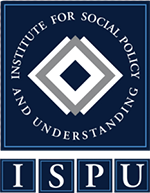
WHY ISPU?
The Institute for Social Policy and Understanding (ISPU) is a non-religious, nonpartisan nonprofit organization that provides objective research and education about American Muslims to support well-informed dialogue and decision-making. Founded in 2002, ISPU has been at the forefront of discovering trends and opportunities that impact American Muslims for almost 20 years. ISPU builds understanding and strengthens communities by laying a foundation of actionable research. As the only organization of its kind, it is the go-to source for anyone seeking objective information about Muslims in America and the issues that impact them.
Since 2002, ISPU has equipped tens of thousands of change makers including:
- Members of Congress, the Department of Justice, the White House, and other policymakers
- Media organizations
- Schools, community colleges, and universities
- Community leaders and organizations
- Faith leaders
- Law enforcement
- Nonprofit leaders
- Advocates
- And many more
WHY YAQEEN?
Islam has a centuries long tradition of inspiring its adherents to contribute to humanity based on conviction in its tenets. Previous generations of Muslims were on the forefront of contributing to medicine, philosophy, architecture, and governance among other areas. We are an institute aiming to rekindle this tradition.
Constant negative portrayals of Islam have put Muslims in a defensive position in which they constantly have to justify their convictions, while fighting off the natural doubts and insecurities that arise in such a climate. As such, young Muslims should be intellectually equipped and spiritually anchored in a way that empowers them to deal with the onslaught of doubt-inducing claims routinely leveled against Islam.
Yaqeen Institute for Islamic Research is a nonprofit think tank launched in 2016 to counter this narrative by magnifying trusted voices within the Muslim community to tell their own story. Yaqeen is dedicated to providing academic research on Islam from foremost Muslim scholars and academics, making it an authoritative reference point on contemporary Islamic discourse and Muslim identity formation. Yaqeen aims to directly address these topics by producing quality research that is carefully disseminated through articles, surveys, journals, videos, infographics, conferences, toolkits, curriculum, mobile applications, and more. By ensuring that their content is fully accessible, Yaqeen seeks to nurture conviction in Muslims to inspire positive change and contribution to society as a whole.
WHY MAPS?
Muslim Americans in Public Service (MAPS) is a national, non-partisan, non-profit network of professionals and organizations that aims to create an enabling ecosystem for Muslim American public servants and the public institutions they serve. The first organization of its kind, MAPS serves as an educational and professional resource for Muslim American public servants and the local associations that support them, to while cultivating the next generation of Muslim American public service leaders.
Why This Guide?
The Problem→
Little understanding or misunderstanding of Islam, a lack of data on American Muslims, and a dearth of Muslim voices in policy circles in America
The Solution→
Research organizations focused on the study of normative Islam (Yaqeen Institute for Islamic Research) and the trends, opportunities, and challenges of American Muslims (Institute for Social Policy and Understanding)

ISPU PROVIDES…
Numbers
The latest survey data on American Muslim demographics, religiosity, civic engagement, contributions, and attitudes toward political and social issues
Research-Based Recommendations + Toolkits
Digestible, data-based recommendations gleaned from ISPU’s rigorous research publications in accessible formats, including toolkits, videos, and infographics
New Ideas
Background on issues seldom discussed to help bring new perspectives to understanding community and current events
Expert Input
Direct access to more 50 experts on issues related to Muslims in the United States through ISPU’s scholar network
Evidence-Based Briefings + Workshops
Signature trainings tailored to equip policymakers, media professionals, educators, and faith leaders with facts on American Muslims

YAQEEN INSTITUTE PROVIDES…
Authenticity
Research that is produced by mainstream Muslim scholars and academics that demonstrates the beauty of the Islamic tradition often obscured by Islamophobic narratives and extremist distortions
Intellectual Thought
A research engine that has published over 130 high-quality, peer-reviewed research papers on Islam
Accessibility
Academic papers systematically converted into videos, audiobooks, infographics, live broadcasted Q&A sessions, curricula, journals, and other media assets distributed online
Curriculum + Toolkits
Structured learning for Muslim institutions, media outlets, policymakers, youth groups, and self-paced individual learners looking to navigate complex topics with simplicity and cutting-edge technology
Contribution
A platform to highlight present-day efforts of Muslims who have been inspired by their faith to contribute positively to humanity, with ideas and recommendations to inspire many more
What Do Muslims Believe?
By Imam Omar Suleiman
Founder and President of The Yaqeen Institute for Islamic Research
- Muslims believe in One God who has sent Prophets and Messengers to humanity with revelations that serve as divine guidance for how to live purposefully and righteously. These Prophets and Messengers include Abraham, Moses, Jesus, and Muhammad (peace be upon them), who all serve as carriers of a singular monotheistic message.
- As such, Muslims hold the Quran to be the final revelation of God through the Prophet Muhammad (peace be upon him), which they recite and seek to live by in their everyday lives.
- Muslims are to pray five times a day, fast during the month of Ramadan, give an annual amount of their income in charity, and perform the Hajj pilgrimage to Mecca when able to do so.
- Muslims are taught to serve their neighbors and exemplify their commitment to God in how they treat those around them.
- They are called to be law abiding so long as the law does not prohibit them from practicing their faith.
- The Prophet Muhammad (peace be upon him) said: “None of you has faith until he loves for his brother or his neighbor what he loves for himself.” Muslim scholars have always understood this tradition to mean your brother in humanity and your neighbor in any land.
.
Commonly Used Terms
The diversity of Muslim communities results in a wide array of terminology. Here are some commonly used terms:
Alhamdulillah
“Thank God”
Allahu Akbar
“God is greater”
Aqeedah
Religious creed
Eid
A Muslim holiday
Eid Al-Adha
Holiday that marks the sacrifice of Abraham coinciding with the Hajj pilgrimage
Eid Al-Fitr
Holiday that marks the end of Ramadan, the Islamic holy month of fasting
Fard
An Islamic term that denotes a religious duty commanded by God
Fatwa
A religious opinion given by an Islamic scholar or jurist
Fiqh
Islamic jurisprudence
Hadith
Traditions containing sayings and actions of the Prophet Muhammad
Hajj
Pilgrimage to Mecca
Iftar
A meal eaten by Muslims breaking their fast after sunset during the month of Ramadan
Imam
A Muslim prayer leader; can also mean congregation leaders that fulfill organizational and pastoral needs of a mosque
Inshallah
“God willing”
Juma’ah
Friday noon prayer
Khutbah
Sermon given during the Friday noon prayer
Masjid (Mosque)
A Muslim place of worship
PBUH
“Peace Be Upon Him”; a prayer said by Muslims after the Prophet’s name out of reverence
Quran
Central religious text of Islam, which Muslims believe to be a revelation from God
Ramadan
Month of fasting, when the Quran was first revealed
Salaam
Greeting of peace
Salah
A prayer; usually referring to the five daily prayers required of all Muslims as one of the pillars of Islam
Shahadah
The testimony of faith (“There is no deity but God. Muhammad is the messenger of God”)
Shariah
A path that leads to water; the way of God
Sheikh
A religious leader
Sunnah
The example or precedent of the Prophet Muhammad that constitutes the major source of guidance for Muslims apart from the Quran
Shia
Shia is an Arabic word that means “the followers.” It generally refers to Twelver Shia Muslims, and may include subsects like the Ismaili and Zaidi Muslims. There are approximately 200 million Shia Muslims worldwide, and nearly 800,000 living in the United States. Shia Muslims come from diverse backgrounds, originating from the Middle East, Europe, Africa, and South Asia. The main distinction from Sunni Muslims today are their sources of knowledge and religious leadership. Historically, the difference originated from the question of succession after the death of the Prophet Muhammad and is related to differing views about appropriate leadership for the Muslim community.
Sunni
The largest division of Islam representing close to 90% of the world’s Muslim population. They are understood as an umbrella identity with no centralized clerical institution. Their sources of religious knowledge are the Quran and Sunnah. The Sunnah is a compilation of the Prophet Muhammad’s compiled sayings and actions which serve as the authoritative interpretation of the Quran. The consensus of Muslim scholars is also binding, starting with the Companions of the Prophet Muhammad. Sunni Muslims include adherents to the four extant schools of fiqh including Hanafi, Maliki, Shafii, and Hanbali. They believe in the legitimacy of the order of succession of the first four Muslim caliphs.
Problematic vs. Preferred Language
PROBLEMATIC
These words have been politicized, misrepresented, or misused, and are often used as slurs.
Terror(ist/ism)
According to a recent study, the word terrorist was used in media headlines far more often in reference to perpetrators perceived as Muslim than those who are not for similar ideologically motivated crimes.
PREFERRED
These are neutral, clear, informative alternatives to commonly misused words.
When speaking on ideologically motivated violence, use fact-based language to describe groups, persons, and events at hand. For example, describe perpetrators as “militia,” “gunmen/women,” “bombers,” etc. Calling them “Islamic” gives them a sense of religious validity they do not deserve.
As Imam Omar Suleiman, founder and president of Yaqeen Institute, stated in an article for The Dallas Morning News, “When Islamophobes, politicians, or pundits deem these groups to be ‘Islamic,’ they give them a sense of legitimacy and authority that actual Muslims do not endow them with. They make it harder for us as Muslim scholars to address these degenerates for what they are: outcast criminals. They have no claim to our text. They have no authority in our midst.”
PROBLEMATIC
Islamist (ism)
According to the Merriam-Webster dictionary, this term refers specifically to “a popular reform movement advocating the reordering of government and society in accordance with laws prescribed by Islam.” The majority of these movements are nonviolent and should not be lumped together with those claiming Islam sanctions their violence.
PREFERRED
There is no causal relationship between religious adherence and violence. The Lord’s Resistance Army and the Ku Klux Klan aren’t lumped together as “Christianist terrorists,” even though both claim to act in the name of Biblical teachings. Instead the group’s name is used. Do the same for all groups.
PROBLEMATIC
Jihad
Literally, the word jihad means “struggle” and most often refers to the inner struggle against one’s own evil impulses, such as greed, anger, and malice. According to Muslim theologians, armed jihad is a heavily regulated military engagement where non-combatants, livestock, and even trees cannot be harmed.
PREFERRED
Individuals who commit ideologically motivated violence and claim their actions are sanctioned by Islam should not be referred to as engaging in “jihad,” nor should they be called “jihadis” or “jihadists.” Use fact-based language to describe groups and events. Use the same standards when describing ideologically motivated violence in your communications.
PROBLEMATIC
Islamic State
The group that refers to itself as “The Islamic State,” known also as ISIS/ISIL, has been denounced by nearly every major cleric of Islam as violating normative Islamic teachings.
PREFERRED
Current guidelines recommend Daesh, which is the acronym of ISIL in Arabic, just as Hamas, which is the acronym for a longer Arabic name for the group, is used regularly. Current AP style guidance doesn’t use “The Base” for Al-Qaeda. Similarly, don’t translate other words. In all instances possible, use accurate, unloaded terms. The alternatives are ISIS/ISIL.
.
Cutting Through the Confusion: Facts on Muslims and Islam
According to estimates, there are about 3.45 million Muslims living in the U.S., making up an estimated 1% of the U.S. population. Muslims have been part of the American fabric since before our country’s founding. Many arrived in America as enslaved people from Africa. Muslims are doctors, lawyers, musicians, marathon runners, teachers, and much more.
Yet, discussions about Muslims occupy a disproportionate space in the public dialogue. And despite empirical evidence to the contrary, many misconceptions and damaging stereotypes about American Muslims are often repeated in mainstream media and go uncorrected. The following is a data-driven portrait of American Muslims that debunks some common misconceptions.
1.
FACT: American Muslims do not have a majority racial or ethnic group.
Muslims are the most ethnically diverse faith community in the United States. ISPU’s 2019 American Muslim Poll shows that about one quarter identified as Black or African American and another quarter as Asian, while nearly one fifth identify as white and 14% as Arab. Eight percent of American Muslims identify as Hispanic.
2.
FACT: Most Muslims in America are U.S. citizens by birth or naturalization.
Half of American Muslims are born in the United States, and 86% of Muslims are Americans by birth or naturalization.
3.
FACT: A strong Muslim identity is directly correlated with a strong American identity.
In fact, stronger Muslim religious identities correlate with stronger American identities, according to data. Such data challenges the myth that Americanness and Muslimness are mutually exclusive.
As a 2016 Yaqeen study on internalized Islamophobia demonstrated, constructing a strong identity based on deep conviction and confidence can lead to a healthier young Muslim individual that feels valued and responsible for contributing to society as a whole.
4.
FACT: Muslims are one of the most likely groups in the United States to reject violence.
It has become a recurring preoccupation of media pundits and politicians to argue about whether Islam itself is violent and whether such terrorist groups can be justifiably called “Islamic.”
As Dr. Nazir Khan contends in his paper Forever on Trial—Islam and the Charge of Violence, this rhetoric is not only dangerous but dangerously inaccurate.
ISPU’s 2018 American Muslim Poll found that Muslims were the least likely of all faith groups measured to accept both military and individual violence against civilians.
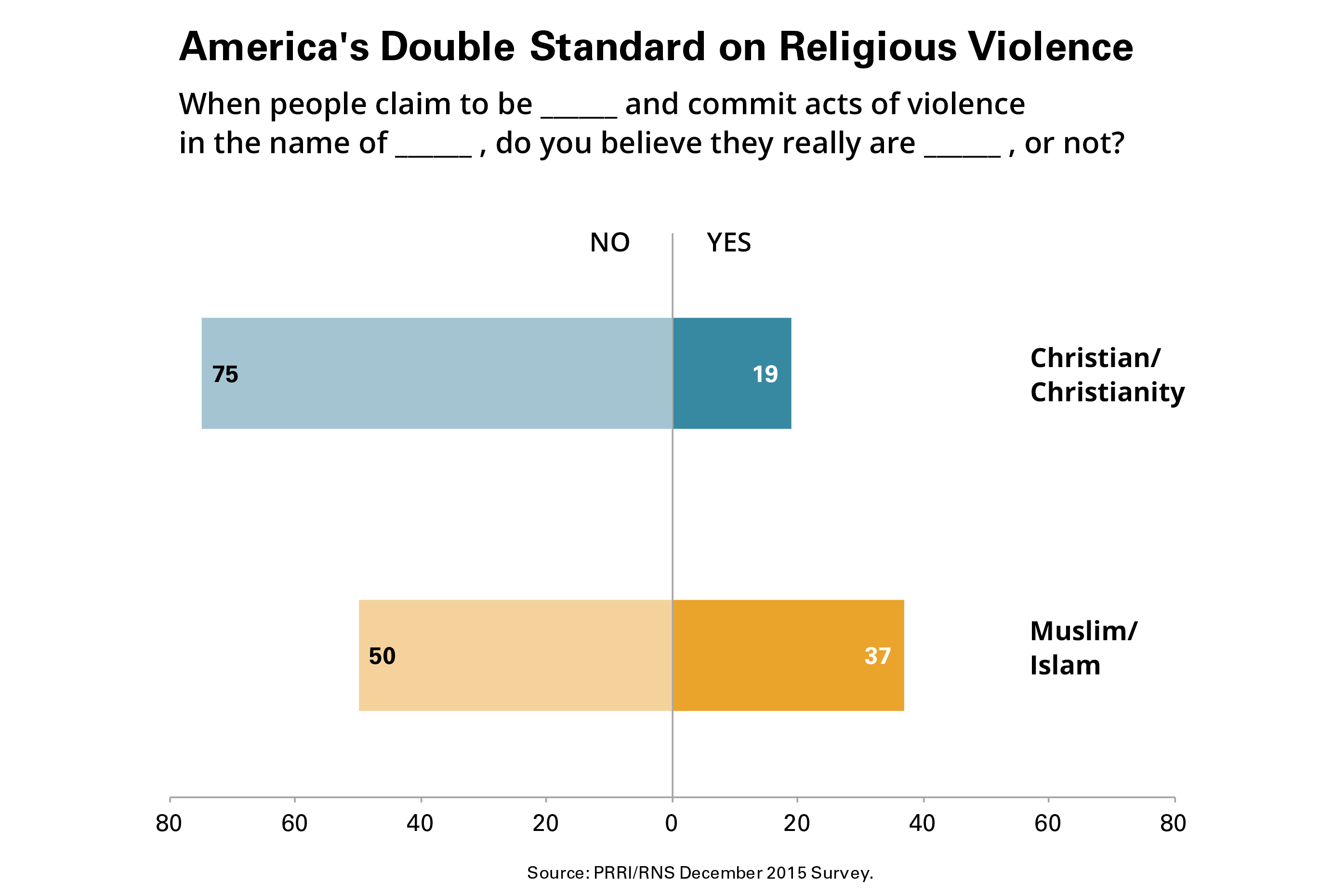
5.
FACT: American Muslim leaders and organizations have consistently and repeatedly condemned violence and denounced violent ideologies.
But should they be expected to?
Here’s one point of view: ISPU Director of Research Dalia Mogahed says, “When [acts of ideologically motivated violence perpetrated by non-Muslims] occur, we don’t suspect other people who share their faith and ethnicity of condoning them. We assume that these things outrage them just as much as they do anyone else. And we have to afford this same assumption of innocence to Muslims.”
6.
FACT: Most Americans agree that Muslims are no more responsible for violence carried out by a Muslim than anyone else.
Most Americans also agree that negative political rhetoric toward Muslims is harmful to the United States.
7.
FACT: American Muslims have been targets of government surveillance.
Americans who are Muslim have been targets of unconstitutional and unwarranted surveillance by local and federal law enforcement, and receive an average of four times the prison sentence as other Americans facing similar allegations. This is despite the fact that in 2019 most violent extremist arrests involved white supremacists.
A strong majority of Americans want to live in a nation where no one is targeted for their faith, and most Americans oppose the surveillance of mosques. Moreover, the majority of Americans support Muslim civil rights. Americans who are Muslim are as likely as other Americans to express concern about violence in the name of Islam and are more likely to reject violence in the name of any ideology. And yet their civil liberties are often violated in the name of national security.
8.
FACT: Violence by perpetrators perceived to be Muslim receives far more media attention than other types of ideologically motivated violence.
A recent study by ISPU found that perceived Muslims accused of a violent plot received more than seven times the media attention as their non-Muslim counterparts, despite similarities in their alleged crimes. Similarly, Muslim-perceived defendants accused of violent acts were referenced in the media more than four times the rate of their non-Muslim counterparts.
9.
FACT: Muslims who bring up religious-based claims in court are not attempting to change the laws of the United States.
Individual Muslims determine the role of religious rules in their lives depending on their personal beliefs. If a legal dispute arises involving one of those rules, individuals will likely find themselves in litigation, raising claims before an American judge. Anti-shariah legislation restricts the rights of American Muslims to apply religious rules to their lives, from legal matters such as how they specify their wealth is divided after their death to personal matters of devotion like praying five times a day and fasting in the month of Ramadan.
10.
FACT: The concept of taqiyya refers to a religious permission to conceal one’s faith if revealing it endangers one’s life; it is not an open license to lie.
As explained by Muslim scholars, nothing in Islam gives Muslims general permission to lie. The origin of the notion of taqiyya refers to the permissibility for Muslims to conceal their faith if identifying as Muslims puts their lives in danger. Even this concept in its most accurate form is so esoteric to most Muslims that they often only learn of it from Islamophobes.
11.
FACT: By an overwhelming margin, Muslim women choose how they dress.
ISPU recently asked American Muslim women why they wear an identifying religious symbol like hijab. Ninety-nine percent of respondents indicated that wearing hijab was a personal choice, whether for piety, the desire to be identified as a Muslim, or modesty.
12.
FACT: The overwhelming majority of American Muslim women say Islam is a source of pride and happiness in their lives.
American women who are Muslim are one of the most educated female religious groups in the United States. They also overwhelmingly view their faith as a source of happiness and a part of their identity for which they feel a great deal of pride. As described in a Yaqeen Institute publication, the rights afforded to women by Islam in the seventh century include the right to enter into a consensual marriage, to remain their own legal entities after marriage, to initiate a divorce, to receive child support, to own property, to pursue education, and to be involved in social and political affairs, long before women more broadly were afforded these rights.
Many Muslim women rise to the tops of their professions as doctors, lawyers, and scholars. A recent study suggests U.S. news media’s disproportionate focus on gender discrimination in Muslim societies, while ignoring similar issues in non-Muslim societies, contributes to stereotypes that Muslims are distinctly sexist and misogynistic.
The language of liberating Muslim women from Islam in the name of allyship serves instead to reinforce false myths about women in Islam, even in supposedly supportive spaces.
13.
FACT: American Jews and American Muslims are more likely to hold favorable than unfavorable views of each other.
In fact, according to ISPU research Jews and Muslims mirror views of each other, with about half of each group holding favorable views of the other. Furthermore, Jews are the mostly likely faith group to know a Muslim, with three in four reporting knowing a Muslim personally, compared with about half of the general public. Islamophobia and anti-semitism go hand in hand, both stemming from the larger tree of bigotry.
14.
FACT: Endorsement of the Muslim Ban does little to help candidates with most voters.
An elected official’s support for President Trump’s travel ban does not increase voters’ support for that official. Rather, a majority of Americans report that a candidate’s support of this policy either decreases their support or makes no difference to their support for the candidate.
The American Muslim Political Dilemma
By Imam Omar Suleiman, Founder and President of The Yaqeen Institute for Islamic Research
As a minority faith group, American Muslims have been prone to embrace any politician or alliance that embraces them. However, many Muslims have come to realize that the tokenization of the Muslim community usually follows a pattern of temporary embrace to permanent abandonment based on mere political convenience. There has also been a trend to only associate with Muslims who have not been viciously targeted by the billion-dollar Islamophobia industry, which seeks to demonize mainstream Muslim organizations and leaders, rendering the community unable to tell its own story and appoint its own representatives in consequential spaces. Muslims often face only conditional embrace, with the embracing parties unwilling to challenge their own Islamophobic biases and inconsistencies. When conservatives limit their calls for religious freedom to Christian religious freedom, and liberals limit their calls for inclusivity to liberal Muslims, they both betray their own professed ideals.
Muslims are not a racial group but a faith group that happens to be made up primarily of minority races. As a faith group, Muslims have binding theological commitments that do not make them disloyal citizens. They seek both the ability to preserve their faith and participate with it. That means that Muslims have concerns with religious freedom in that they seek the ability to practice Islam fully in their institutions without intimidation or legal restriction, and at the same time participate with their Islam fully by productively leading the way in combating hatred, poverty, systemic injustice, etc., without being asked to forsake what makes them uniquely Muslim.
Islamophobia is not merely anti-Muslim harassment in the public space but a complex form of bigotry that penetrates government agencies, societal trends, and media spaces, often without accountability.
How well do you know American Muslims? These facts from ISPU’s 2016 American Muslim Poll just might surprise you.
.
What Are American Muslims’ Socio-Political Priorities?

JOBS + CIVIL RIGHTS
Muslims’ top priorities for the nation are the economy and civil rights.
- Muslims, like other American faith groups, see the economy as a top priority.
- Muslims contribute disproportionately to job creation.
- Muslims are the most likely faith group to identify bigotry and civil rights as a priority.

CRIMINAL JUSTICE REFORM
Removing systematic bias in law enforcement and the criminal justice system is a top priority of American Muslims.
- Muslims, regardless of racial background, are the most likely faith group to support the movement for Black Lives.
- Muslim defendants systematically receive significantly harsher sentences than white supremacists for similar alleged ideologically motivated plots.

BULLYING
Many American Muslims also worry about their child(ren) facing religious-based bullying at school. Muslim families are the most likely faith group to face such bullying (42%). In one in four of these cases, the bully is a teacher or administrator.

DOMESTIC POVERTY
Feeding the hungry is a critical religious duty for Muslims. According to ISPU research, alleviating domestic poverty is among the most important charitable causes for Muslims in the U.S., and the majority of Muslims believe poverty is the result of bad circumstances, not bad character. Moreover, a full third of American Muslims live at or below the poverty line, the largest portion of any faith community.

RELIGIOUS FREEDOM
By Imam Omar Suleiman
Muslims wish to be able to practice their faith in their daily lives and institutions without interference. This means being able to live in accordance with Islamic scripture and not be forced to violate any religious tenets. The community seeks assurances that Muslims will be able to worship and abide by Islamic obligations without facing discrimination or being legally penalized for being faithful. Any legislation that infringes on the right of the community to live in accordance with Islamic teachings in peaceful co-existence can be perceived as threatening and bigoted. Politicians and policymakers need to take the time to understand how Muslims have felt left out of religious freedom initiatives, often led by Evangelicals, and have been made uneasy by certain proposals from liberals that seem to rob the community of self-determination.

BEYOND OUR SHORES: ADDRESSING GLOBAL ISLAMOPHOBIA
By Imam Omar Suleiman
While Islamophobia has been on the rise in the United States, Muslims in America are deeply concerned with the global dehumanization of Muslims and oppression that often is fueled by the rhetoric and policies of our own government officials. It is not just the ideologically motivated perpetrators who have attacked Muslims in places like Quebec and New Zealand and who have cited President Trump as inspiration, but the Uyghur concentration camps administered by the Chinese government, the fascism in India using white nationalist rhetoric to disenfranchise millions of Indian Muslims and occupy Kashmir, the continued denial of Palestinian dignity, and the genocide of the Rohingya Muslims in Myanmar. All of these causes, and many more, are rooted in the dehumanization of Muslims often inspired by our current Islamophobic climate. Muslims seek more unqualified affirmations of the dignity of oppressed Muslim minorities worldwide, and a consistent application of human rights standards that does not exclude the aforementioned.
.
Muslim Contributions to America
ISPU’s Muslims for American Progress study quantifies the impact of Muslims on U.S. communities across eight areas, including civics and democracy, economic development, medicine, STEM, philanthropy and nonprofits, arts and entertainment, sports, and education.
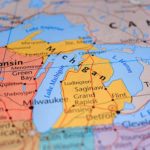
In the state of Michigan alone, for example, where Muslims make up only 2.75% of the population, Muslims contribute to every sector of society. A Michigan without Muslims would lose:
- More than 1600 new inventions
- Medical care for 1.6 million patients
- Social services for 24,000 families
- The education of 30,000 K-12 students
- The creation of 100,000 jobs
- $5.5 billion from its economy
- The representation of 2.3 million constituents
- $117 million in charitable giving

Muslims also make important contributions to New York City:
- More than 95,000 small businesses are owned by Muslims.
- Creating more than 250,000 jobs, New York City Muslims contribute $17 billion to the economy through consumer spending alone.
- Muslim medical professionals alone contribute $384 million in state and local taxes and pay over $4 billion in local wages and benefits.
- 250,000 students per year are taught by Muslim educators in NYC.
- Muslim households spend more than $1.2 billion on education in NYC, well above the average American household.
- Muslims donated over $608 million in charity in 2016, 33% more than the average American household.
American Muslim Philanthropy
American Muslims’ commitment to poverty alleviation is demonstrated through their charitable giving. ISPU’s 2018 American Muslim Poll included questions aimed at uncovering American philanthropic practices. These data-driven insights shed light on American Muslims’ commitment to charitable giving to causes and institutions within and outside of their faith community.
What would an America without Muslims look like? Watch this short video based on ISPU’s Muslims for American Progress (MAP) project to learn more.
.
The Islamophobia Index
The Islamophobia Index is a measure of the level of public endorsement of five negative stereotypes associated with Muslims in America, fielded via ISPU’s American Muslim Poll for three years. These are the items used to construct the index:
Please indicate how much you agree or disagree with the following statements, where 1 means you strongly disagree and 5 means you strongly agree in regards to most Muslims living in the United States.
- Most Muslims living in the United States are more prone to violence than other people.
- Most Muslims living in the United States discriminate against women.
- Most Muslims living in the United States are hostile to the United States.
- Most Muslims living in the United States are less civilized than other people.
- Most Muslims living in the United States are partially responsible for acts of violence carried out by other Muslims.
ISPU analysts chose these five variables based on previous research [2] linking these perceptions with greater tolerance for anti-Muslim policies such as mosque surveillance, racial profiling, and greater scrutiny of Muslims at airports, the so-called Muslim Ban, and even taking away voting rights from Americans who are Muslims. These five measures are not meant to cover the totality of public Islamophobia, which can and does include many other false beliefs about Muslims. They are instead meant to offer an evidence-based measure of five perceptions known to be linked to acceptance of discriminatory policies.
Answers to this battery of questions were used to construct an additive scale that measures overall anti-Muslim sentiment. [3] The resulting Islamophobia Index provides a single metric that is easy to understand, compare, and track over time. The Islamophobia Index measures the endorsement of anti-Muslim stereotypes (violent, misogynist), perceptions of Muslim aggression toward the United States, degree of Muslim dehumanization (less civilized), and perceptions of Muslim collective blame (partially responsible for violence), all of which have been shown to predict public support for discriminatory policies toward Muslims. [4]
It is noteworthy that this index, while called simply the “Islamophobia Index,” only measures anti-Muslim sentiment among the public and not the degree to which Islamophobia is institutionalized by the state. Islamophobia is not simply a phenomenon of societal sentiment, but is a structural phenomenon, manifesting in legislation, budget decisions, and law enforcement practices at the local, state, and federal levels. While our index does not measure structural Islamophobia, public tolerance for many of these practices is linked to higher scores on the Islamophobia Index. [5]
While levels of Islamophobia among the general public have remained relatively stable, Jewish opinions of Muslims have steadily improved between 2018 and 2019:
-
- After a slight uptick in Islamophobia between 2018 (24) and 2019 (28), the general public scored 27 in 2020, on par with previous years.
- Islamophobia among Jews declined steadily from 22 in 2018 to 18 in 2019 to 16 in 2020
- In 2019, Jewish Americans were the most likely group surveyed to know a Muslim personally, a factor associated with lower levels of Islamophobia (76% of Jews vs. 61% of Catholics, 44% of Protestants, 35% of white Evangelicals, 57% of the non-affiliated, and 53% of the general public).
- In 2020, Muslims, Jews, and the non-affiliated had lower scores on the Islamophobia Index (20, 16, and 21, respectively), compared with Catholics, Protestants, white Evangelicals (29, 30, and 34, respectively), and the general public (27).
Politics, not religion, predicts Islamophobia in the general public. The following factors are associated with higher scores on the Islamophobia Index among the general public:
-
- Identifying as a Republican and/or holding political ideology other than very liberal.
- Having experienced any religious discrimination.
- Lower socioeconomic status (annual income less than $30,000 and holding less than a college education).
Religious Discrimination
ISPU’s 2020 American Muslim Poll found Muslims are more are more likely than other groups to experience religions discrimination in institutional and interpersonal settings.
We asked those who reported experiencing any religious discrimination about places where the discrimination may have occurred. Muslims are more likely than Jews and the general public to face religious discrimination in institutional settings such as at the airport (44% vs. 2% of Jews and 5% of the general public), when applying for jobs (33% of Muslims vs. 5% of Jews and 8% of the general public), in interactions with law enforcement (31% of Muslims vs. 2% of Jews and 8% of the general public), and when receiving healthcare services (25% of Muslims vs. 5% of Jews and the general public).
Muslims are also more likely to face discrimination on an interpersonal level such as at a restaurant or other public place (49% vs. 30% of Jews and 23% of the general public) and when interacting with peers at work or school (42% of Muslims vs. 22% of Jews and 24% of the general public). Muslims, Jews, and the general public are equally likely to experience religious discrimination from family and friends (30%, 27%, and 33%, respectively). Unlike prior years, Muslim men are as likely as Muslim women to experience religious discrimination, in general and by setting.
Islamophobia is Bad for All Americans, Democracy and Security
Higher scores on ISPU’s Islamophobia Index are associated with:
-
- A greater acceptance of the military targeting of civilians
- A greater acceptance of individual targeting of civilians
- A greater acceptance of authoritarian attitudes, such as limiting freedom of the press and suspending checks and balances
- Greater support for discriminatory policies, such as the Muslim Ban or surveillance of mosques
American Muslims 101
Additional Resources
ISPU Toolkits
- American Muslims 101
- Resources for Educators
- Resources for Political Engagement Organizers
- Resources for Mental Health Professionals
- Resources for Journalists
ISPU Reports
- American Muslim Poll 2016–2019
- Religious-Based Bullying: Insights on Research and Evidence-Based Best Practices from the National Interfaith Anti-Bullying Summit
- Equal Treatment? Measuring the Media and Legal Responses to Ideologically Motivated Violence in the United States
Yaqeen Publications
- Infographic: Forever on Trial – Islam and the Charge of Violence
- “Why Don’t Muslims Condemn Terrorism?” Western Violence and Scapegoating in an Age of Islamophobia
- Islamophobia in American Society, Culture, & Politics
- Counter-Radicalization: A Critical Look into a Racist New Industry
- The Far-Right’s Love Affair with Islamophobia
- What is Islamophobia? The Politics of Anti-Muslim Racism
- Forever Foreign: Islamophobia throughout American History
- Islamophobia and the Law: Unpacking Structural Islamophobia
.
Contributors
Dalia Mogahed
ISPU Director of Research
Omar Suleiman
Founder and President of The Yaqeen Institute for Islamic Research
Katherine Coplen
ISPU Director of Communications
Tesneem Alkiek
Yaqeen Research Fellow and Director of Expanded Learning
Petra Alsoofy
ISPU Outreach & Partnerships Manager
Erum Ikramullah
ISPU Research Project Manager
Katie Grimes
ISPU Communications & Creative Media Specialist
Rebecka Green
ISPU Communications & Creative Media Specialist
Marwa Abdalla
ISPU Educator & Contributor
Advisors
Abed Ayoub, National Legal and Policy Director, American-Arab Anti-Discrimination Committee
Wa’el Alzayat, Chief Executive Officer, EMGAGE
Dr. Hatem Bazian, Co-founder and Professor of Islamic Law and Theology at Zaytuna College and Founder and Director of Islamophobia Research and Documentation Project (IRDP) at UC Berkeley’s Center for Race and Gender
Zahra Billoo, Executive Director, Council on American-Islamic Relations, San Francisco Bay Area
Imam Zaid Shakir, President of New Islamic Directions
Imam Dawud Walid, Executive Director, CAIR-Michigan


